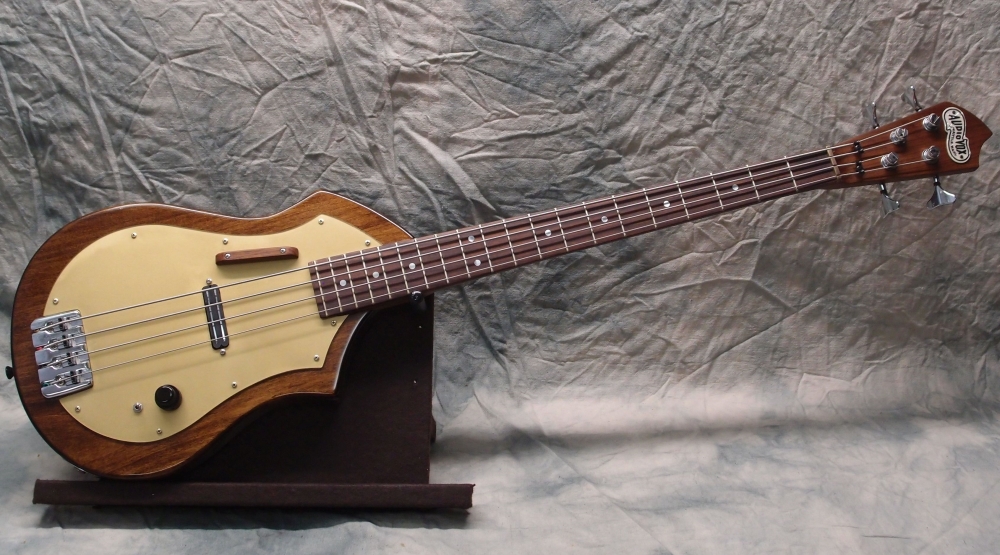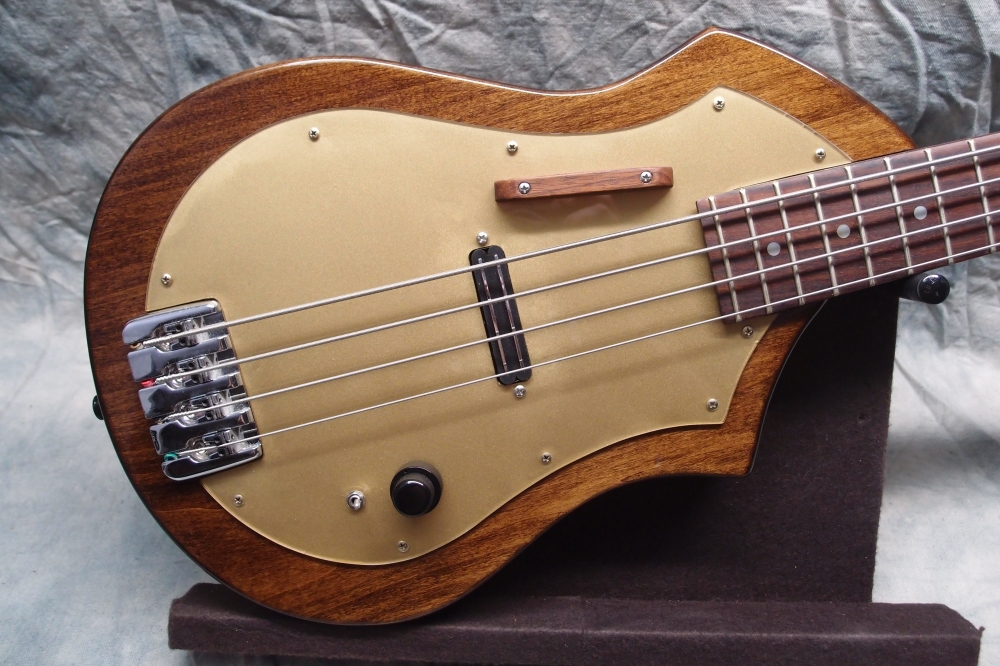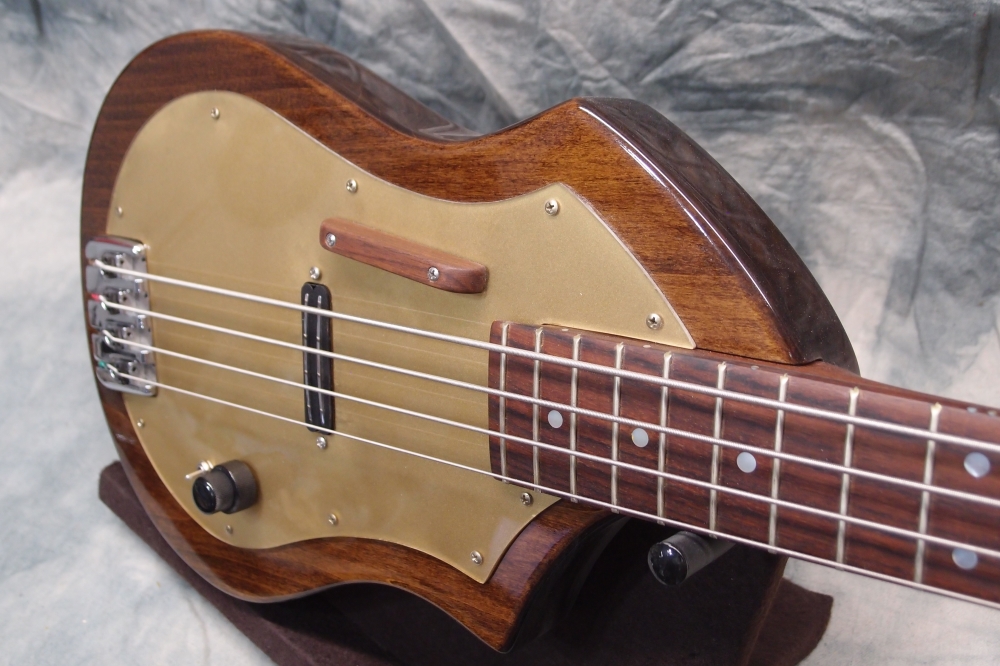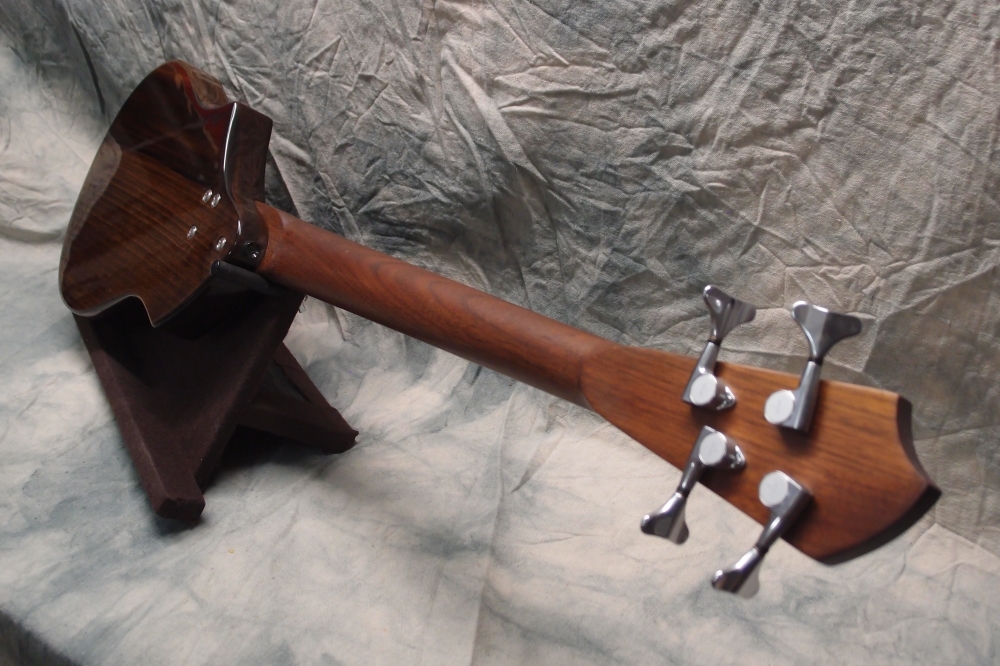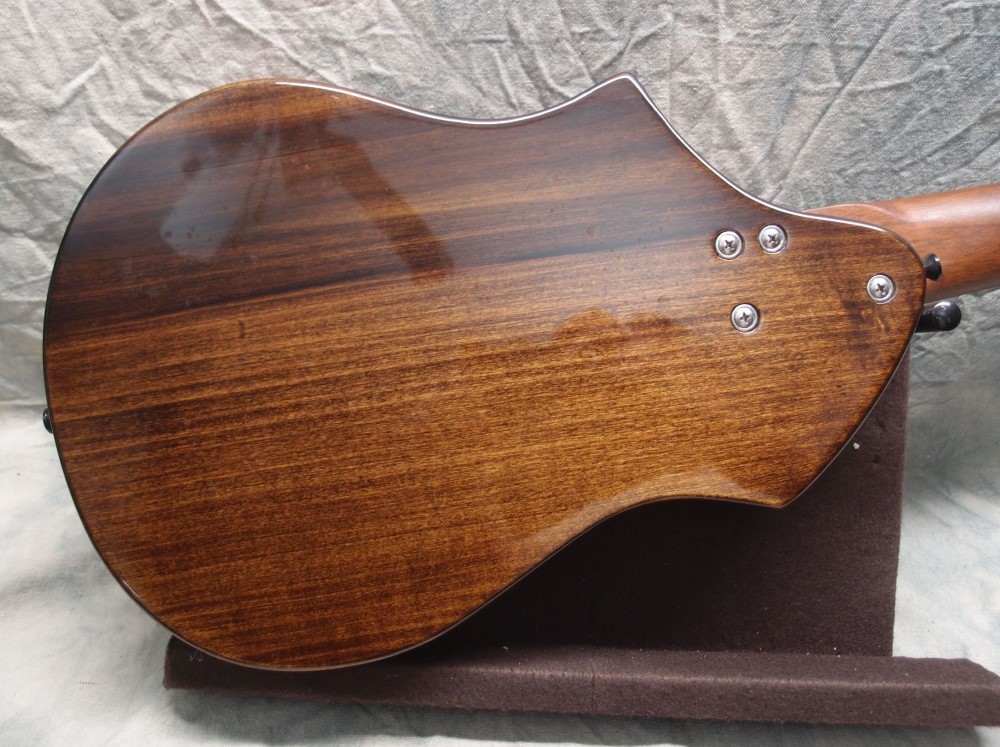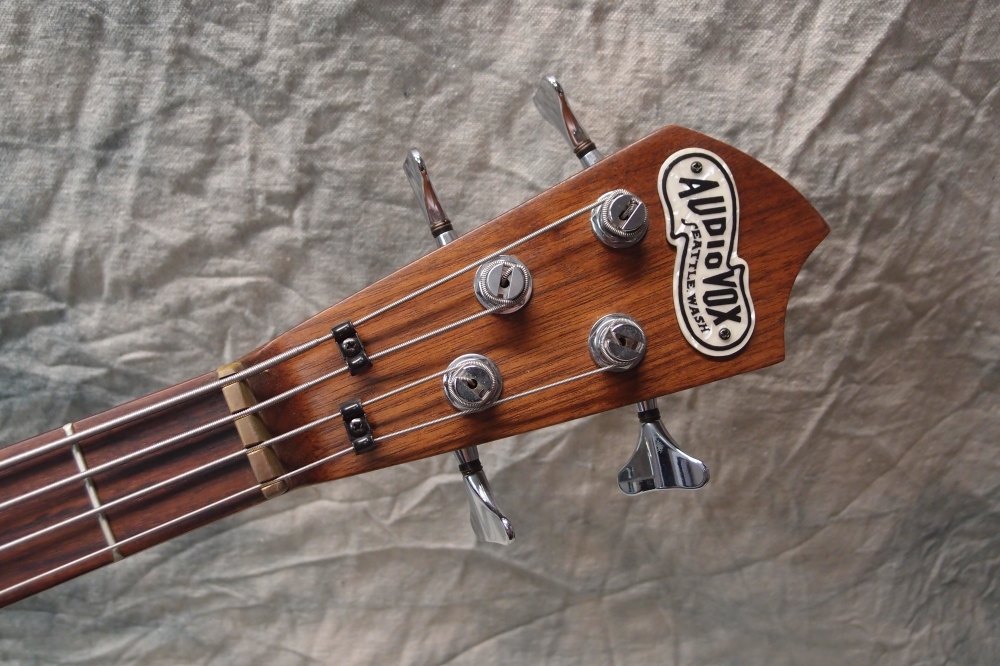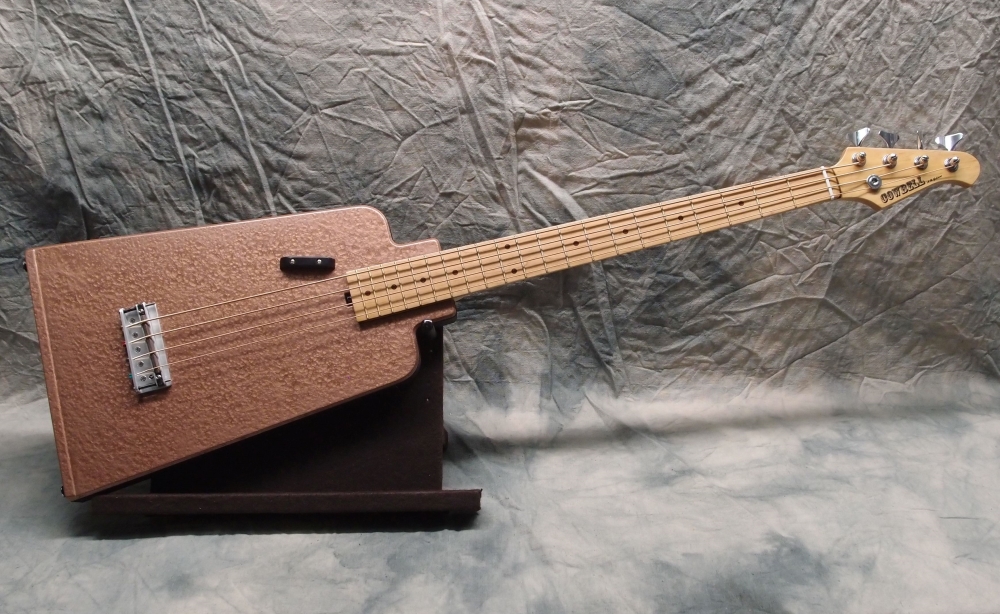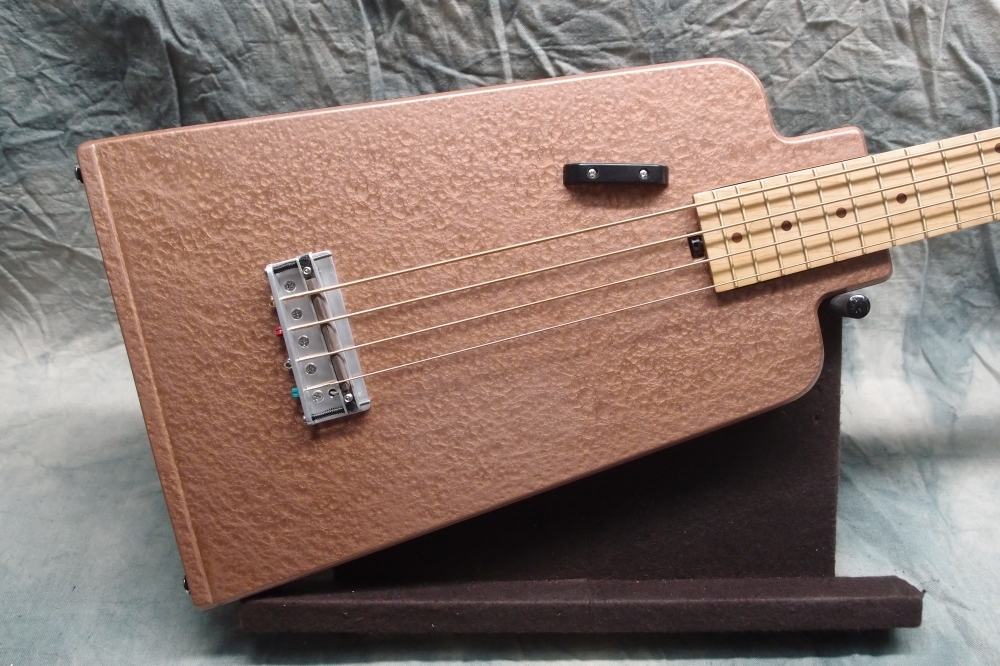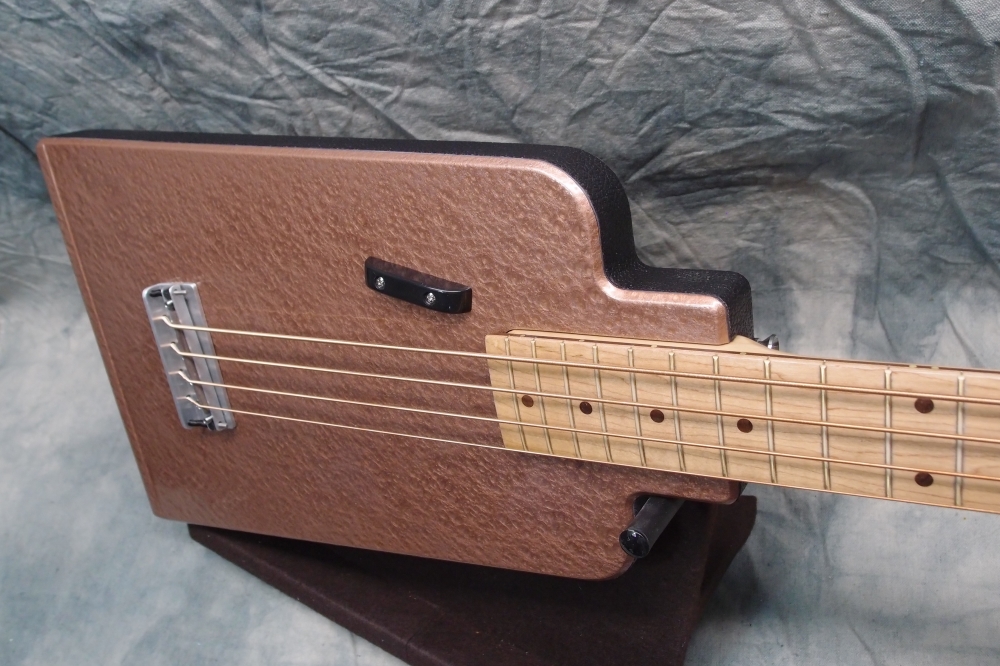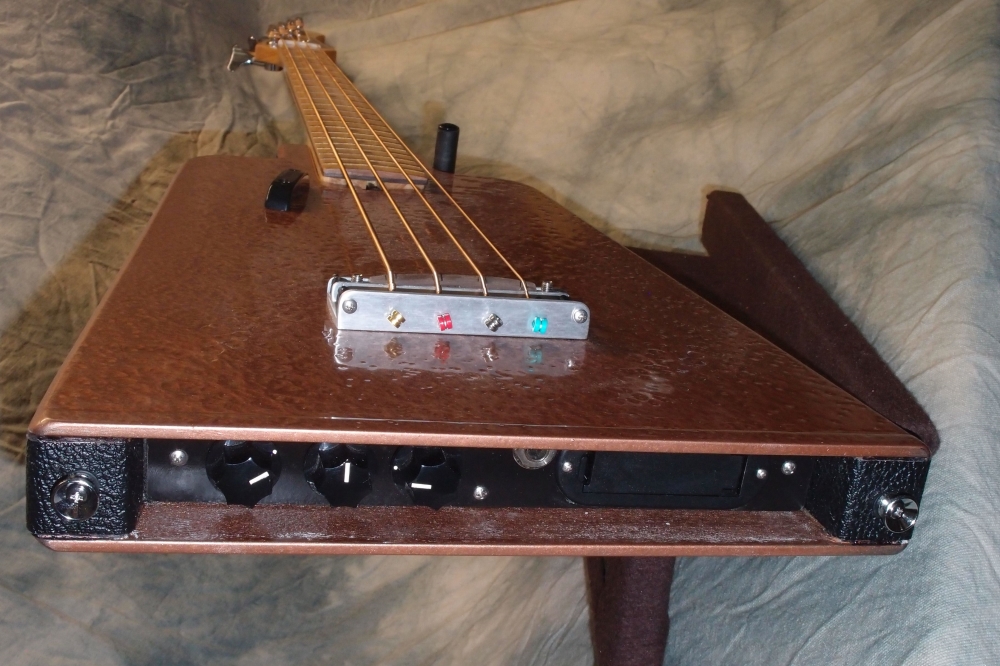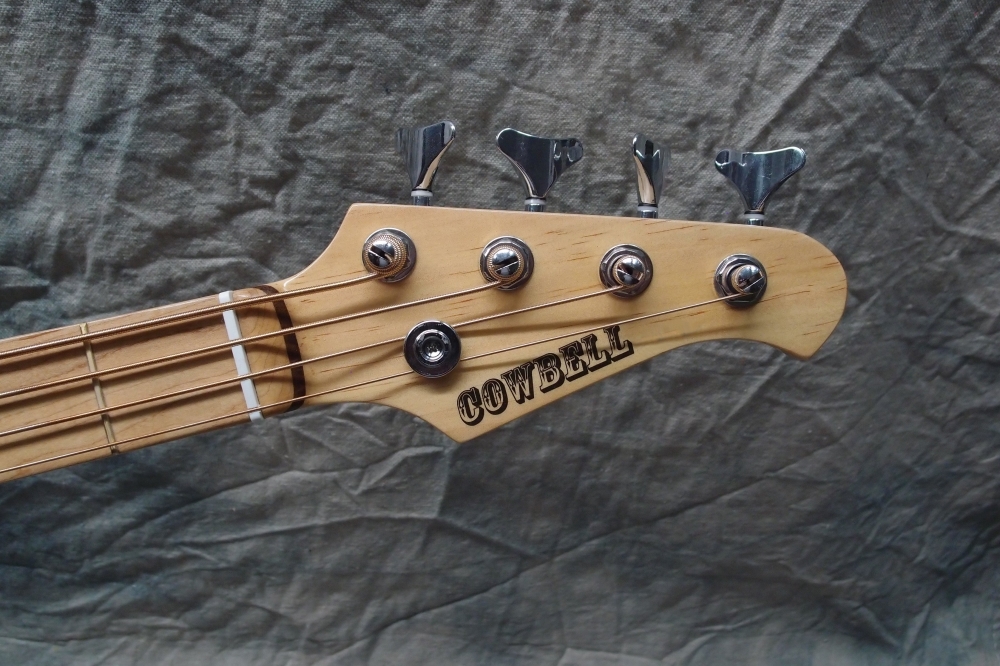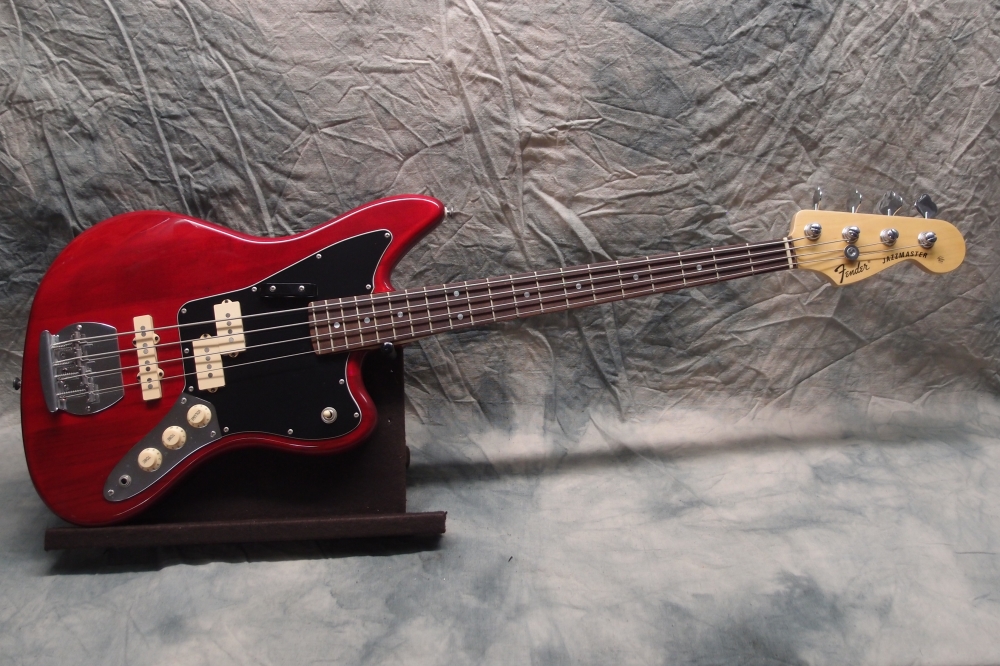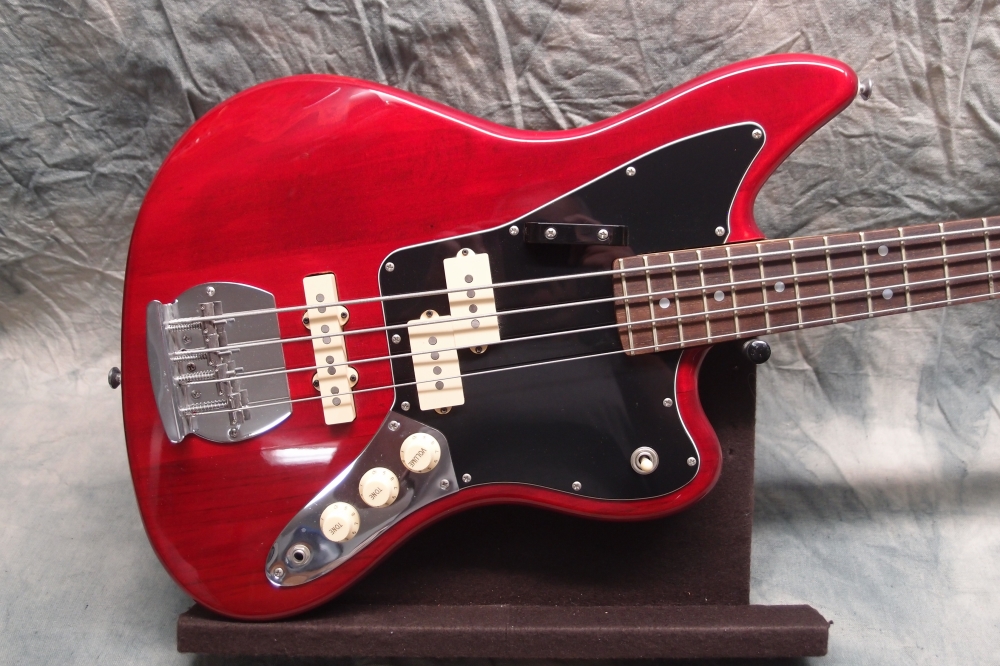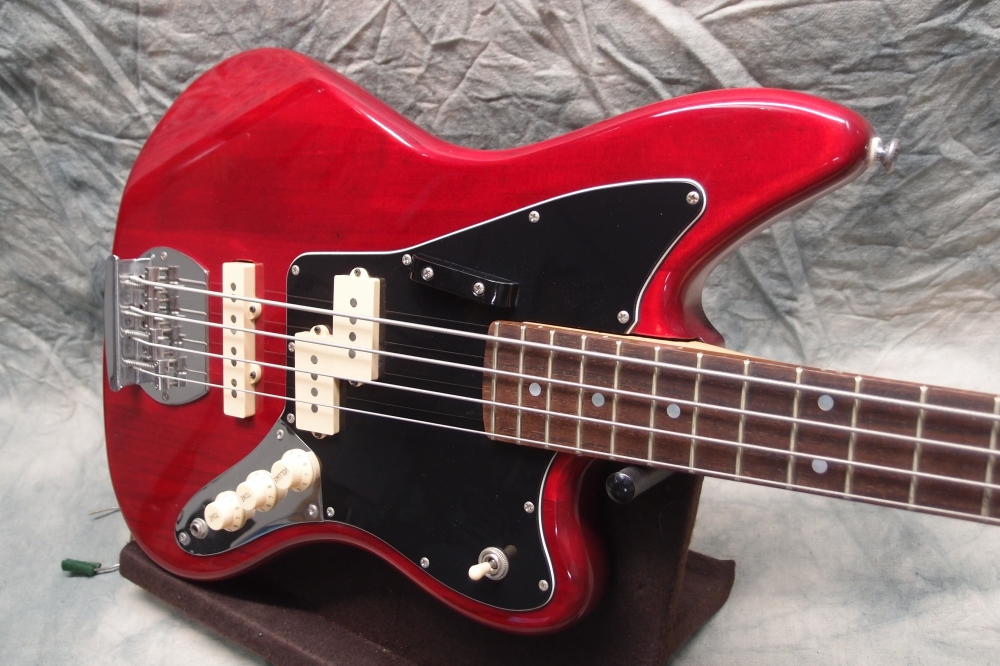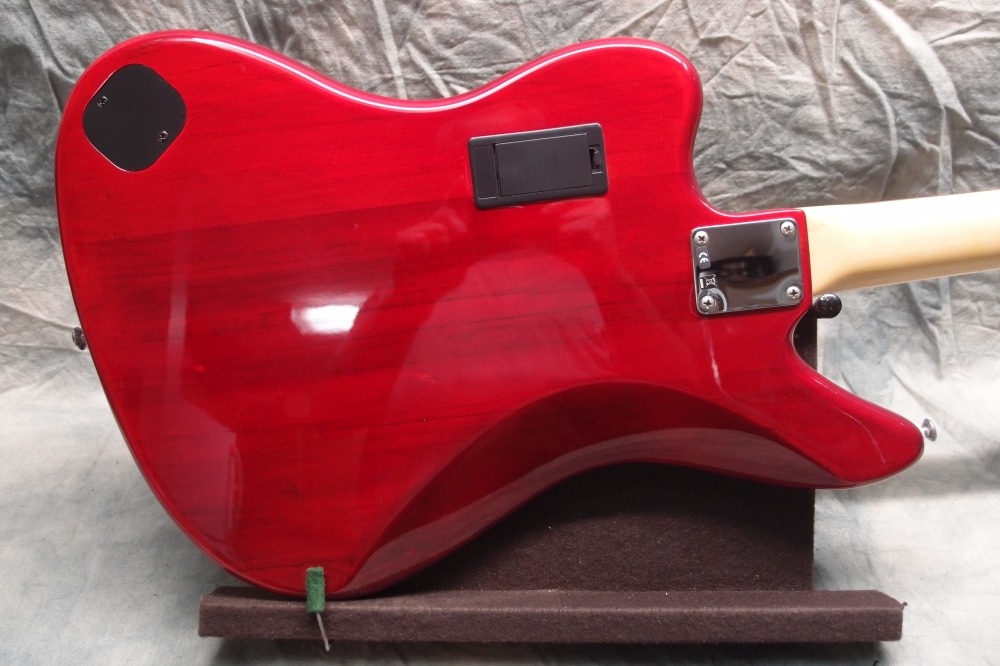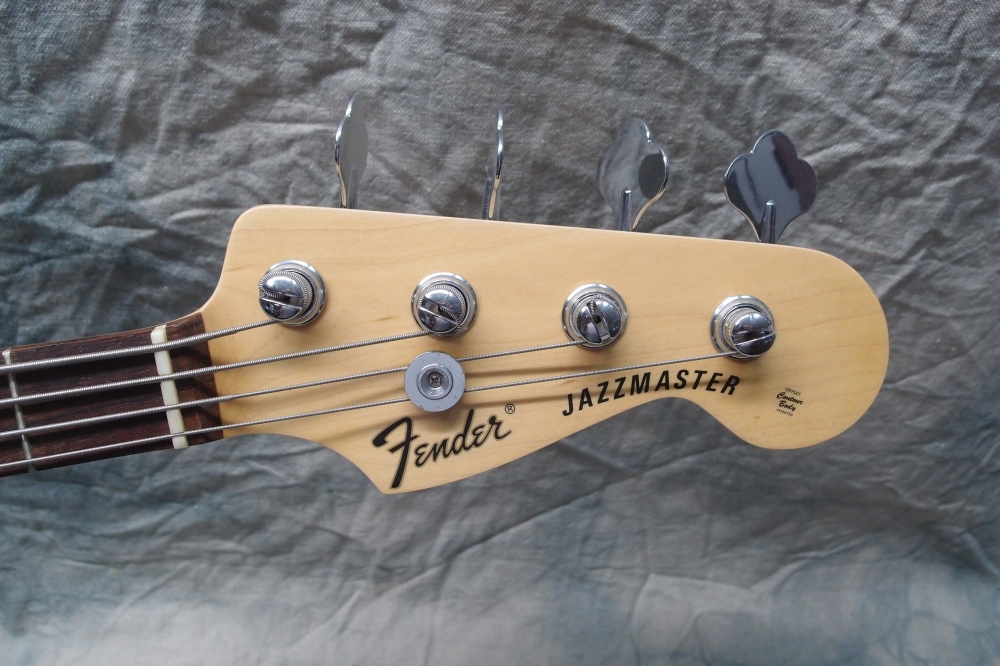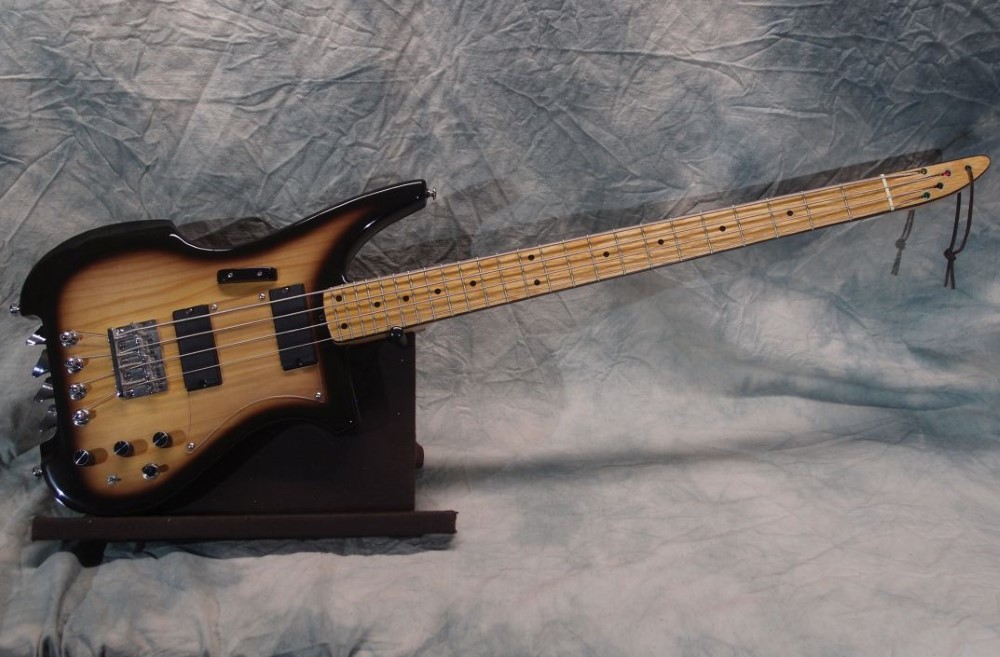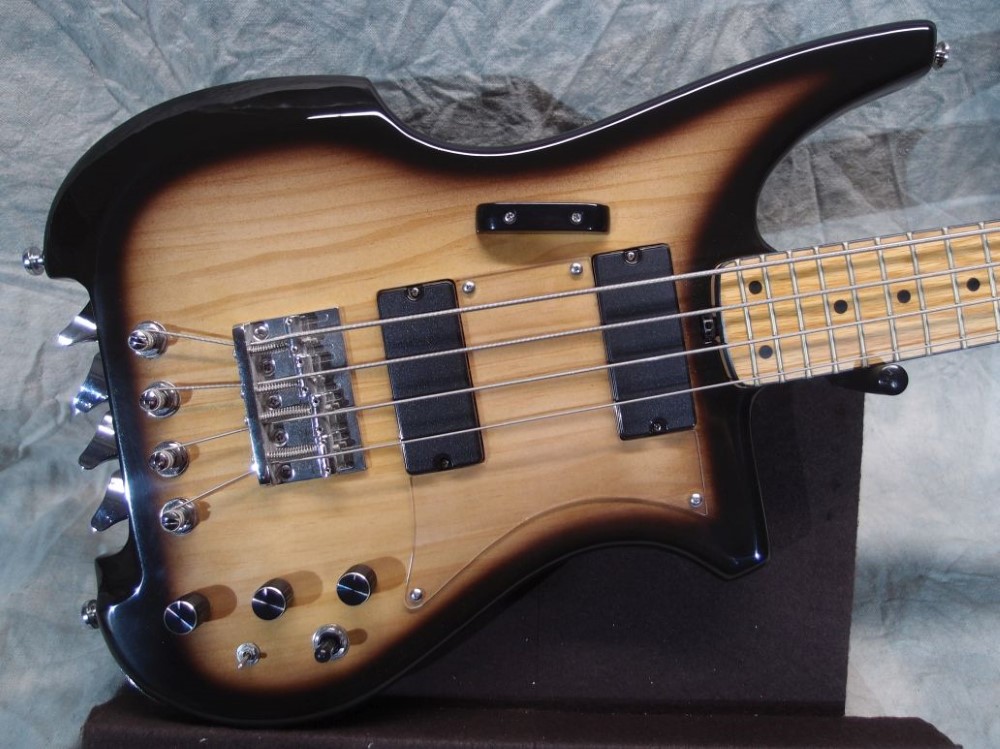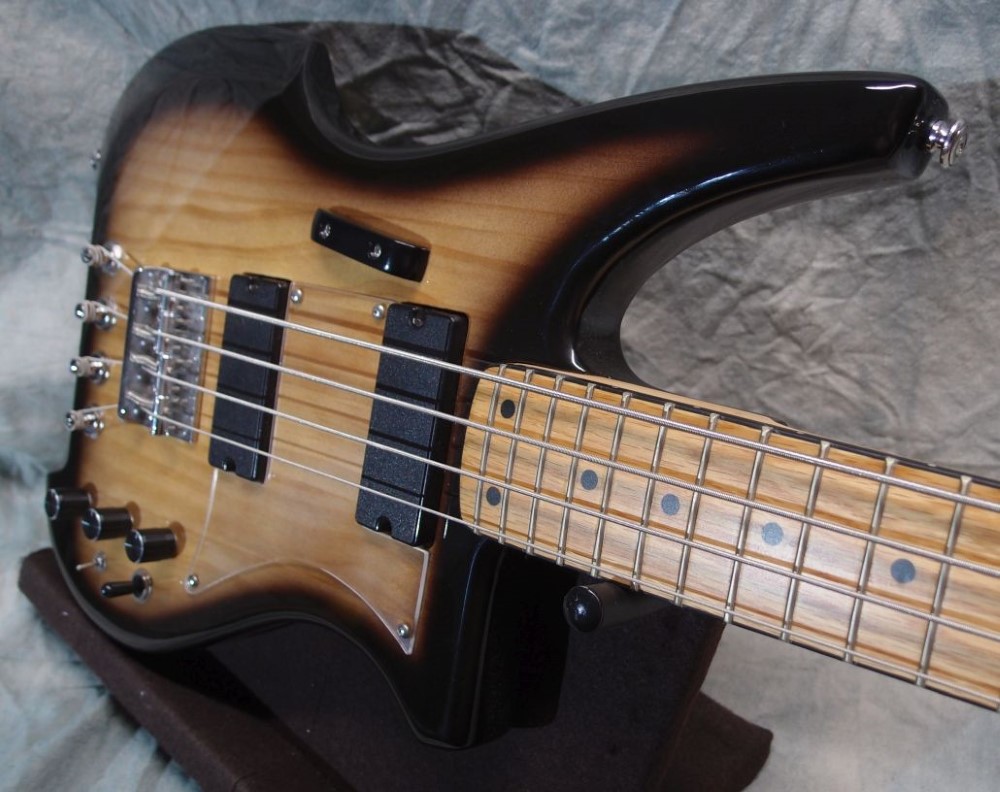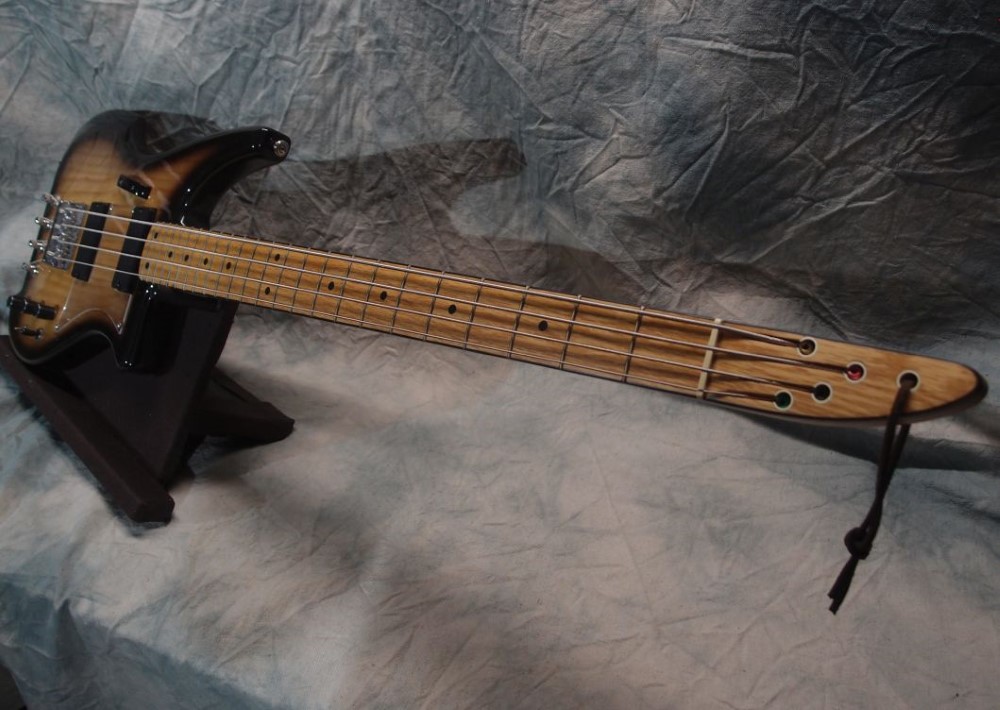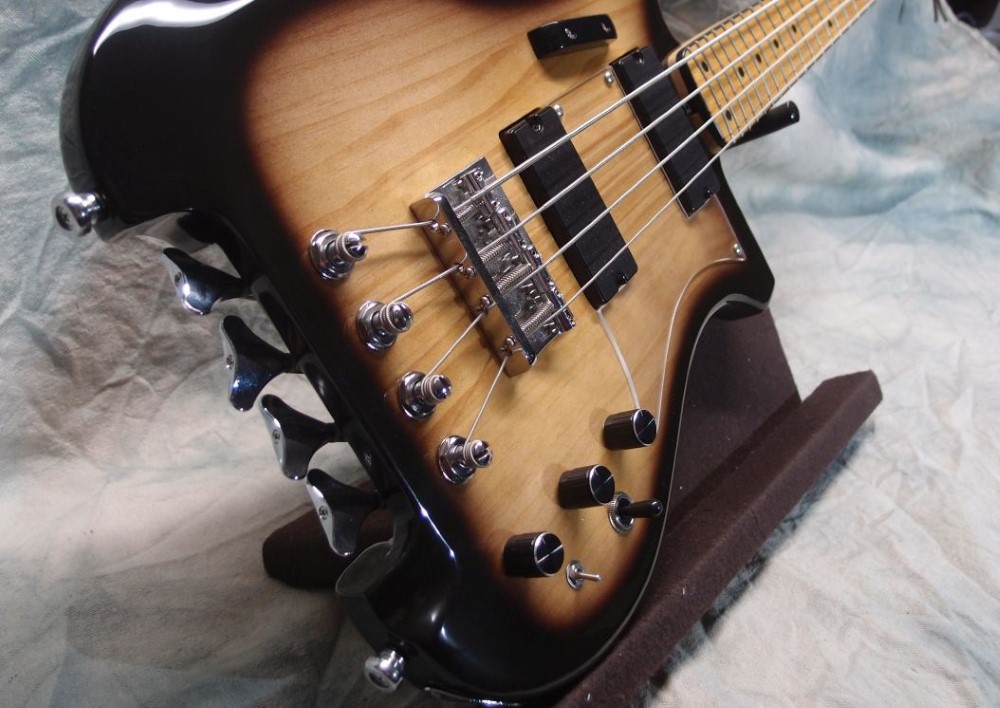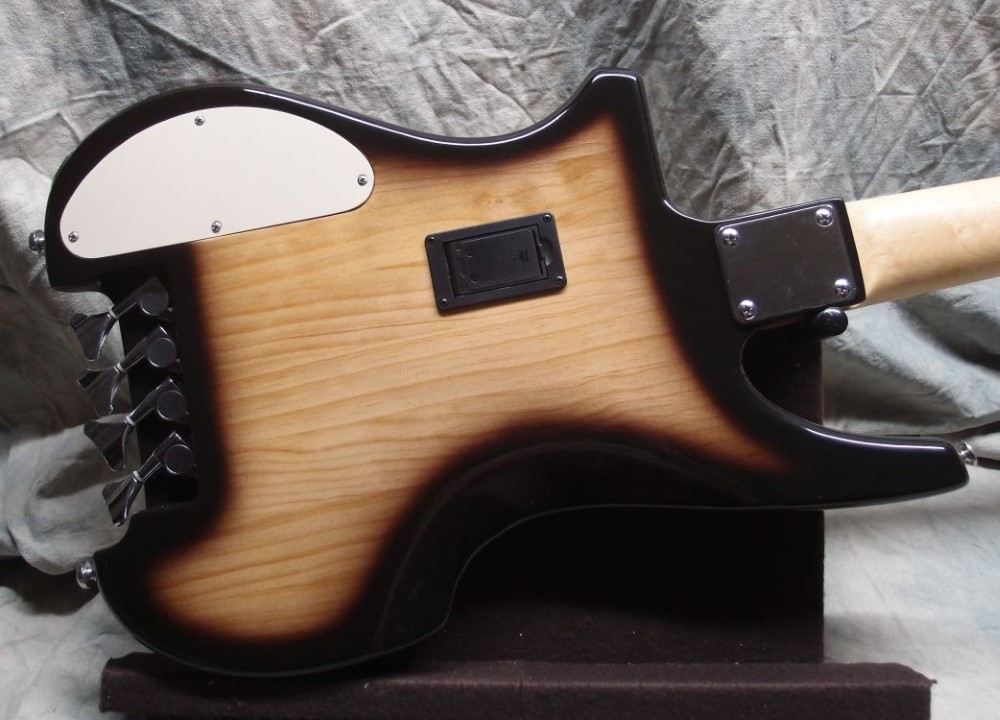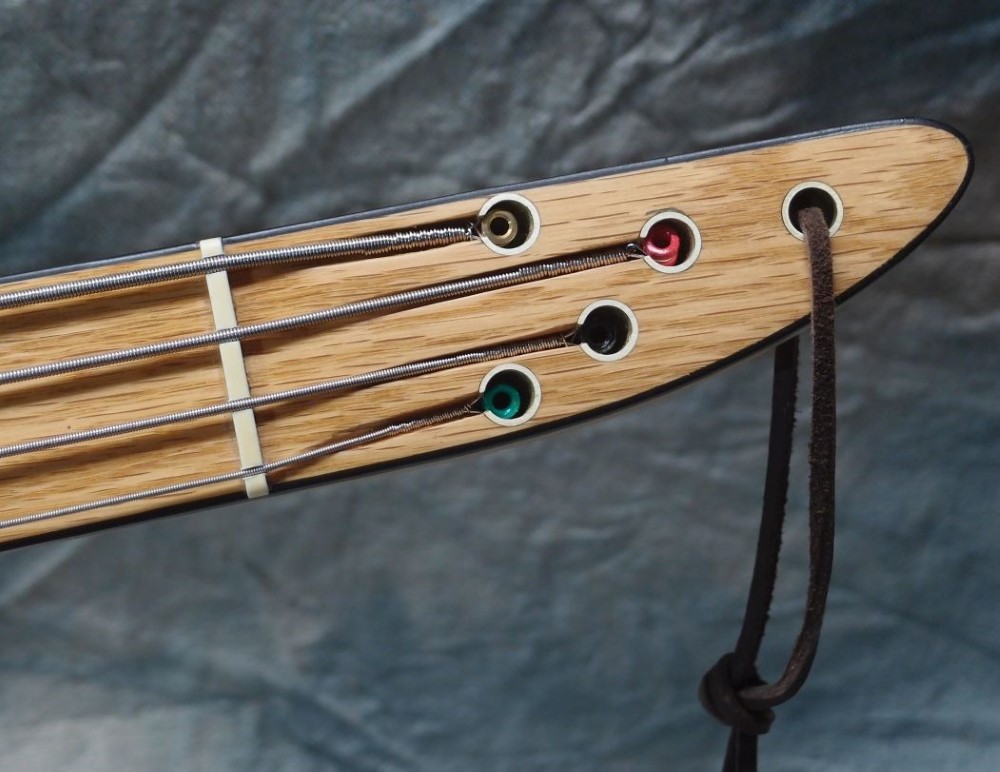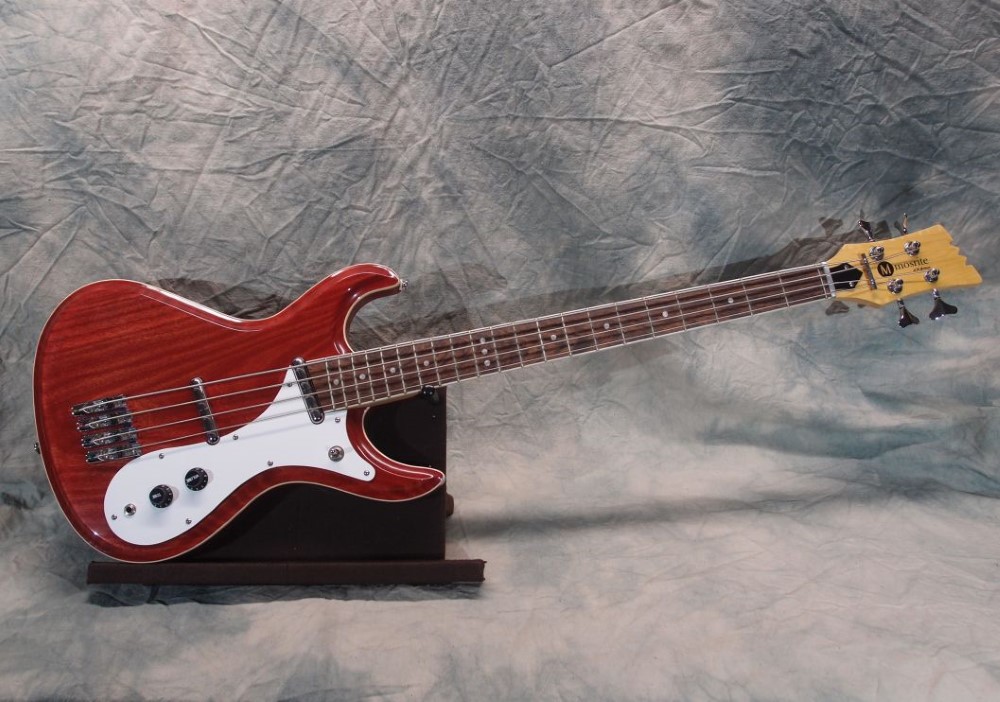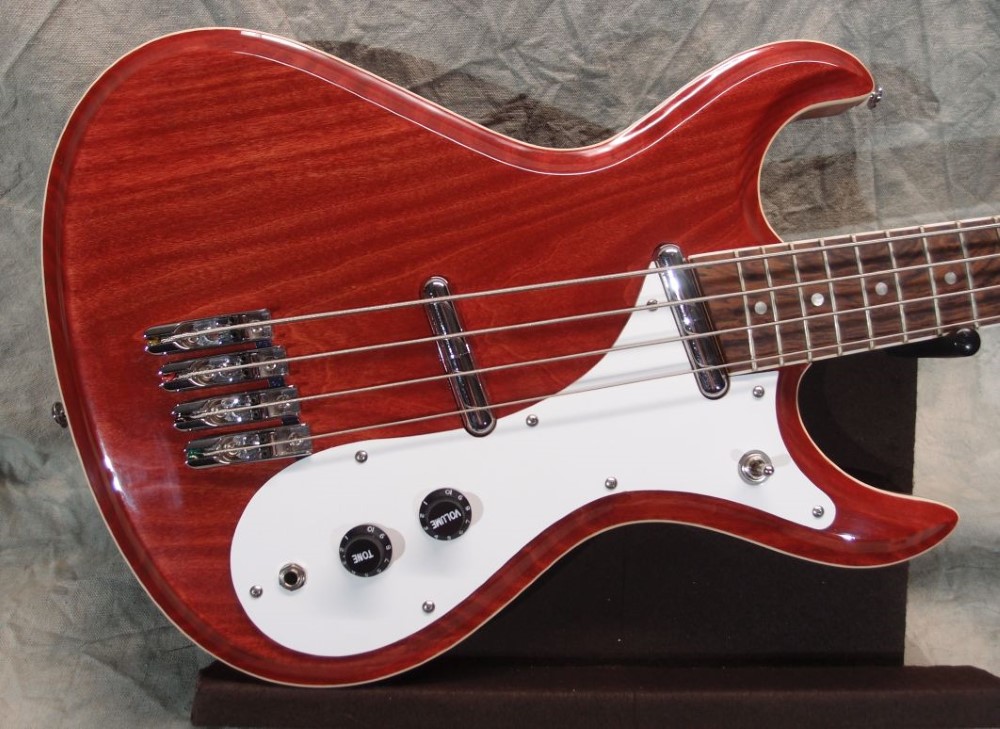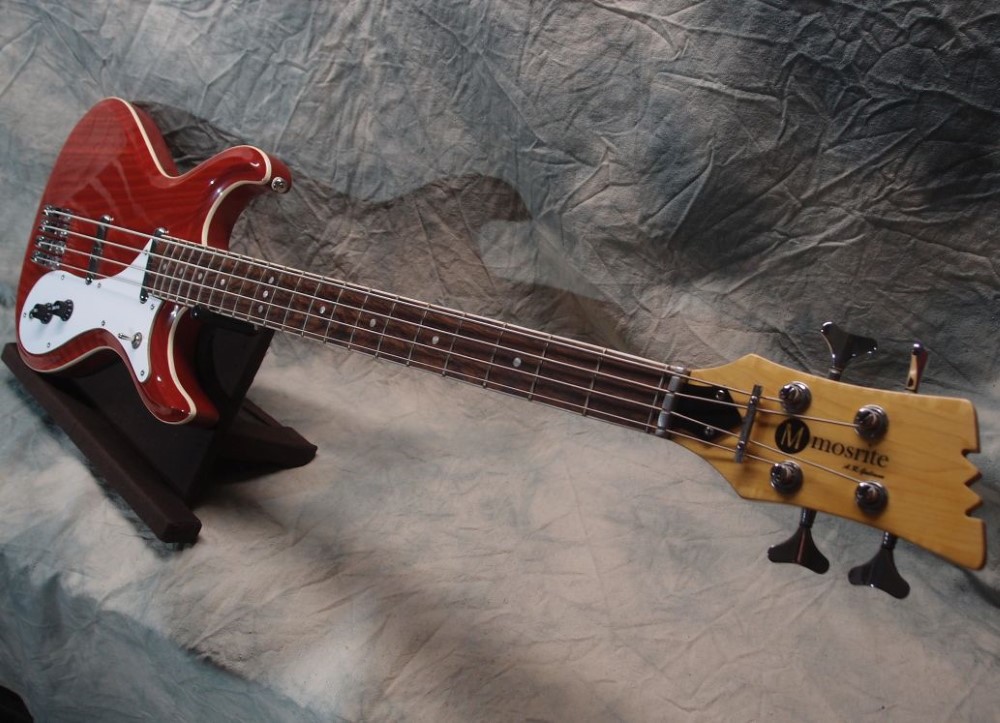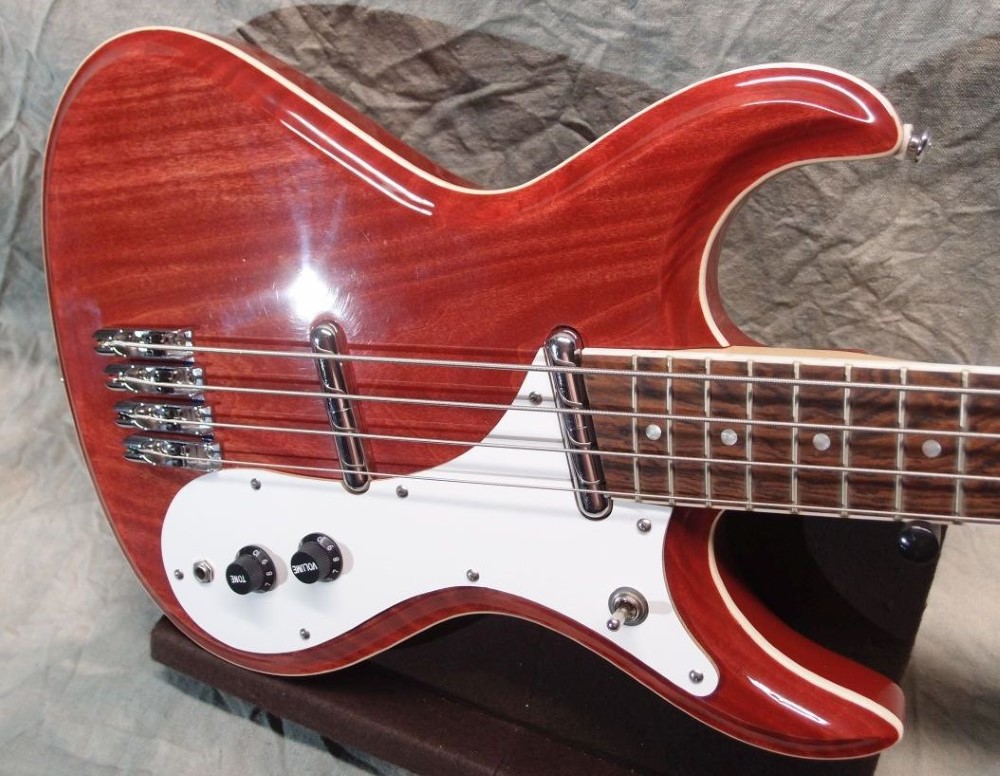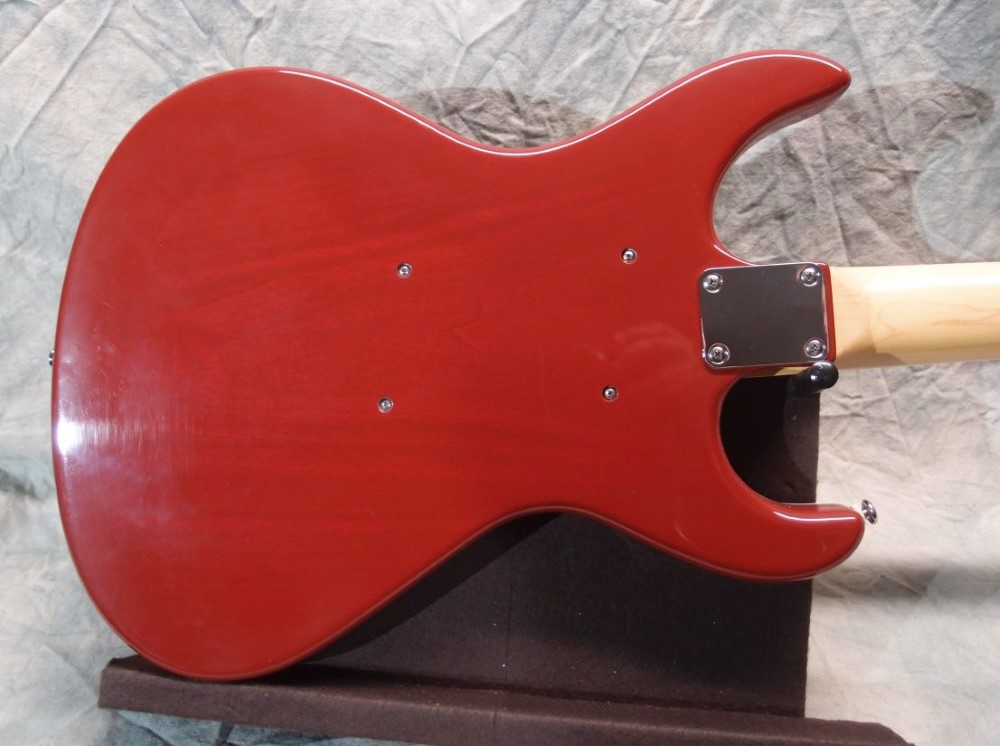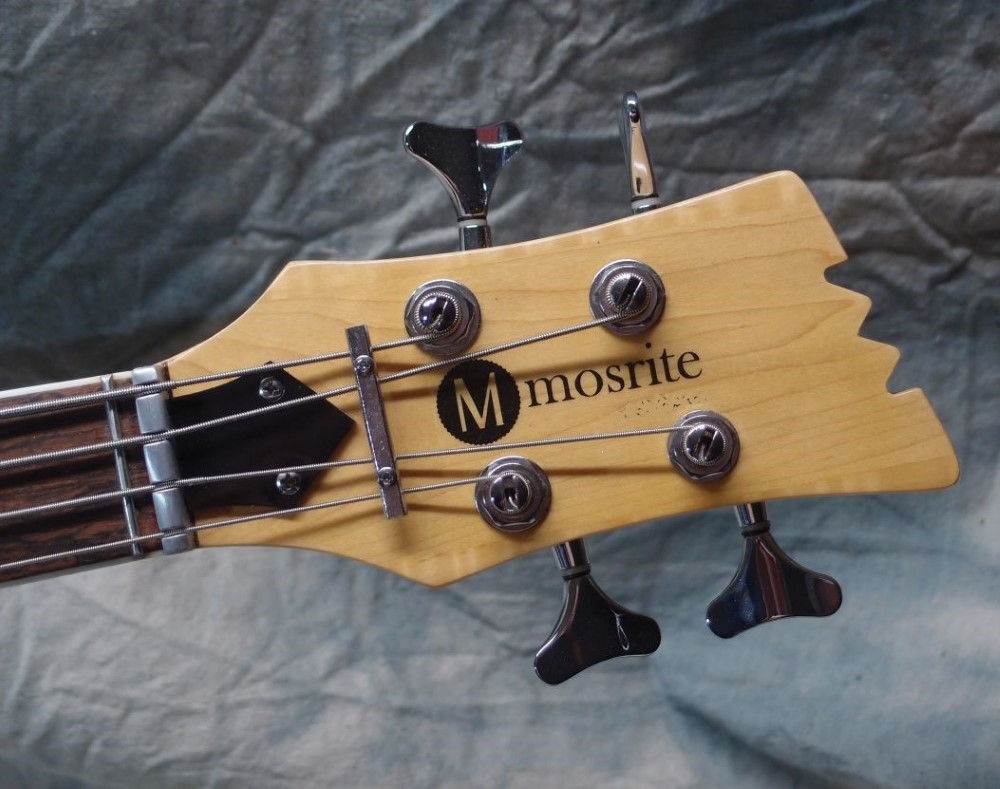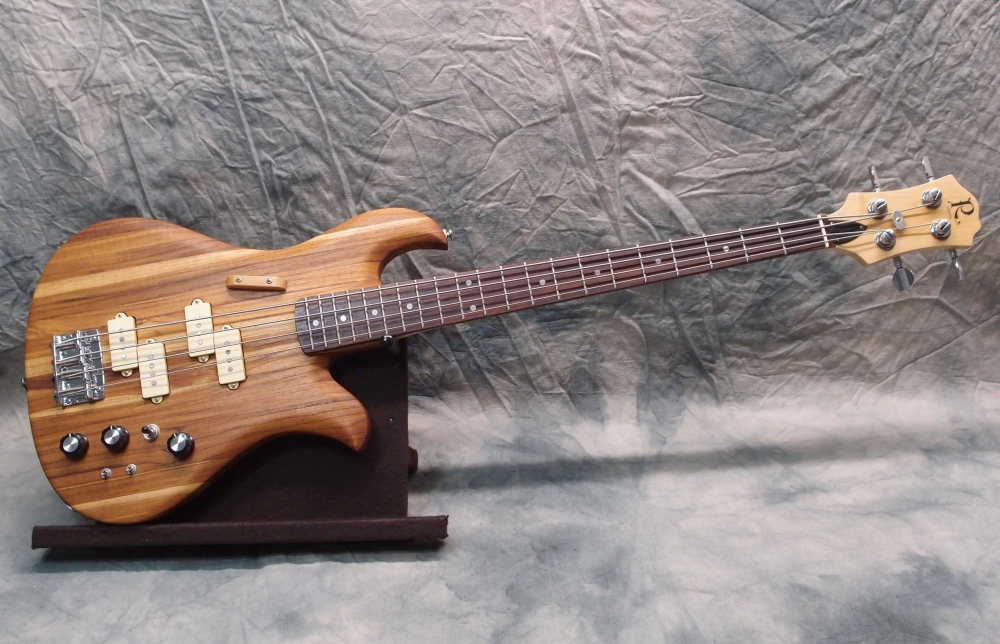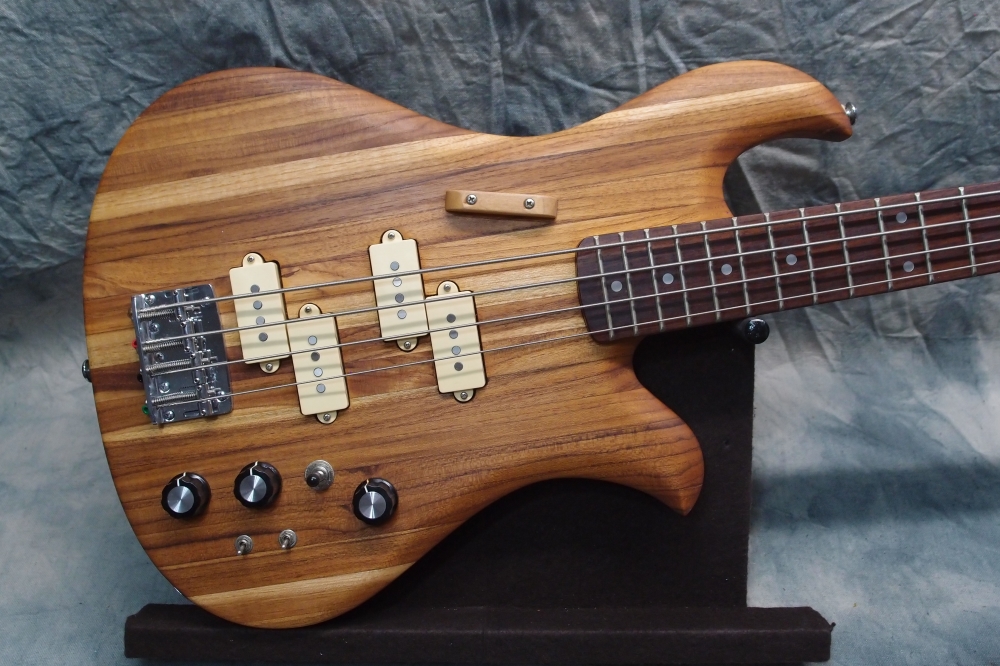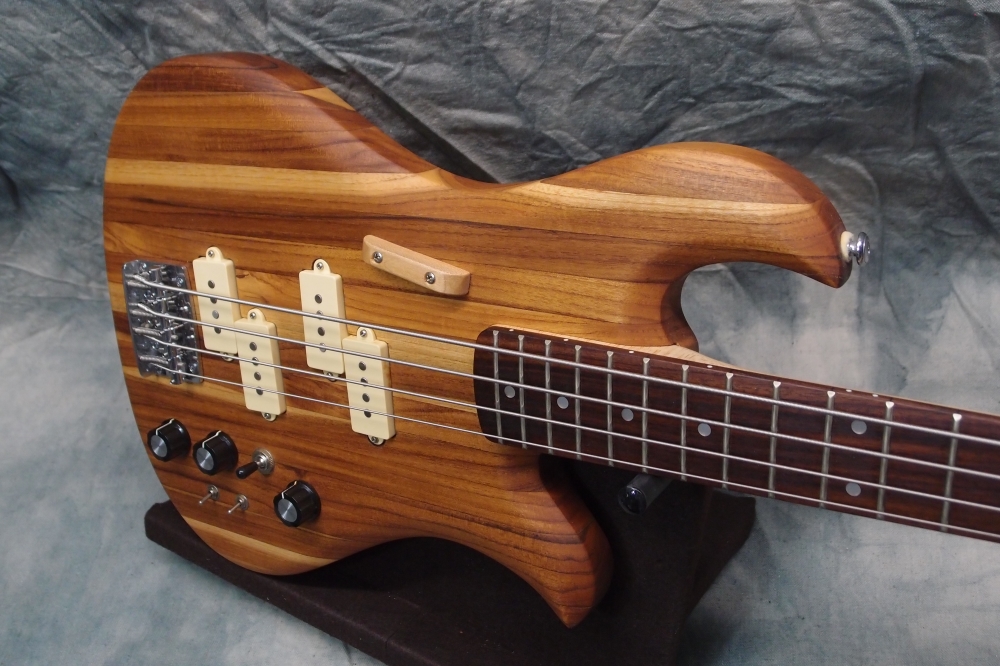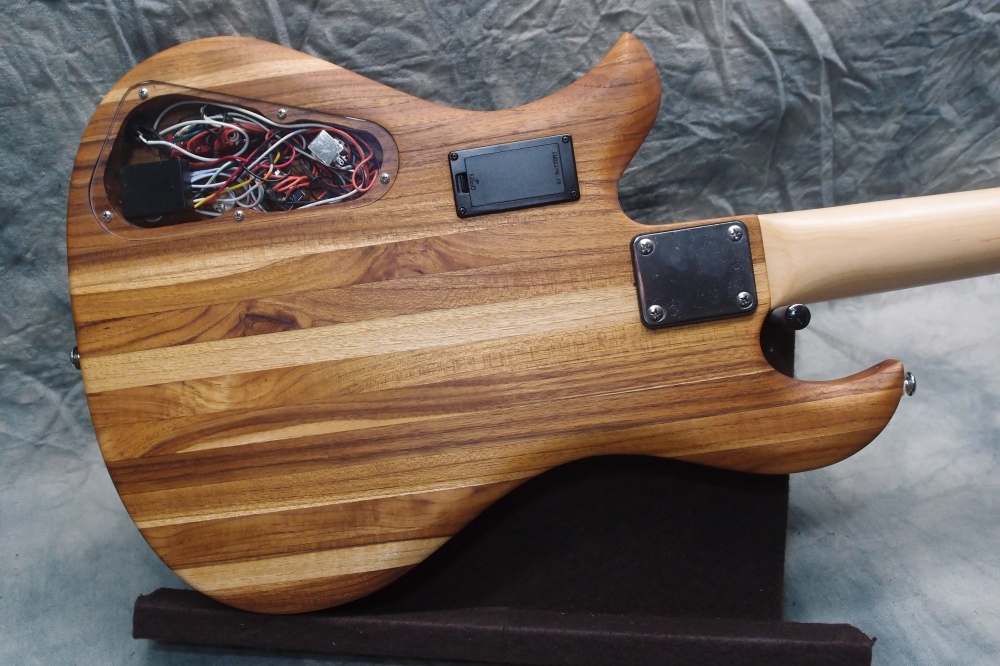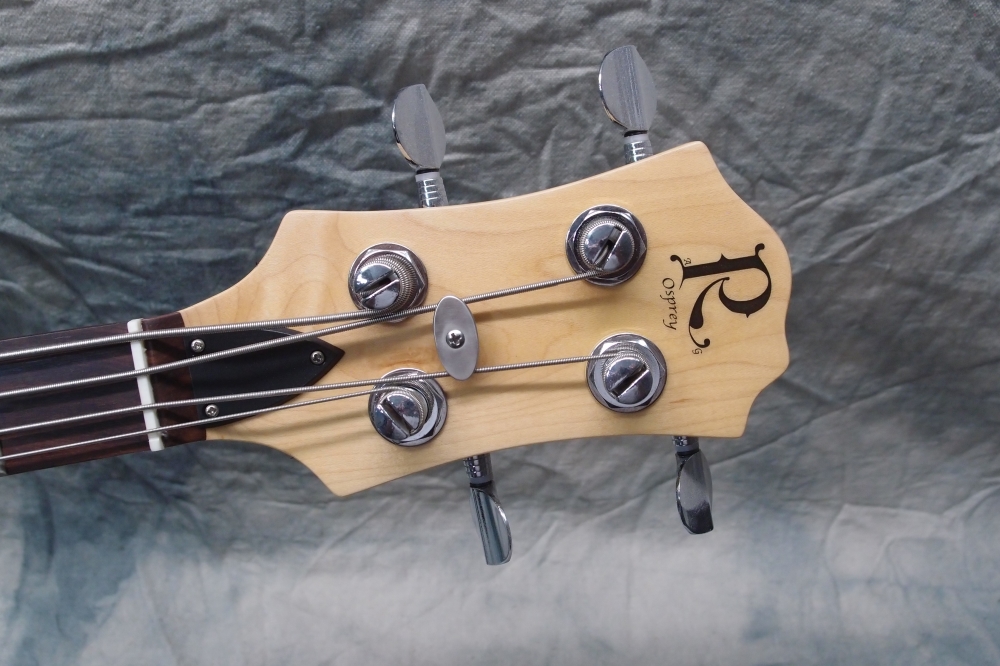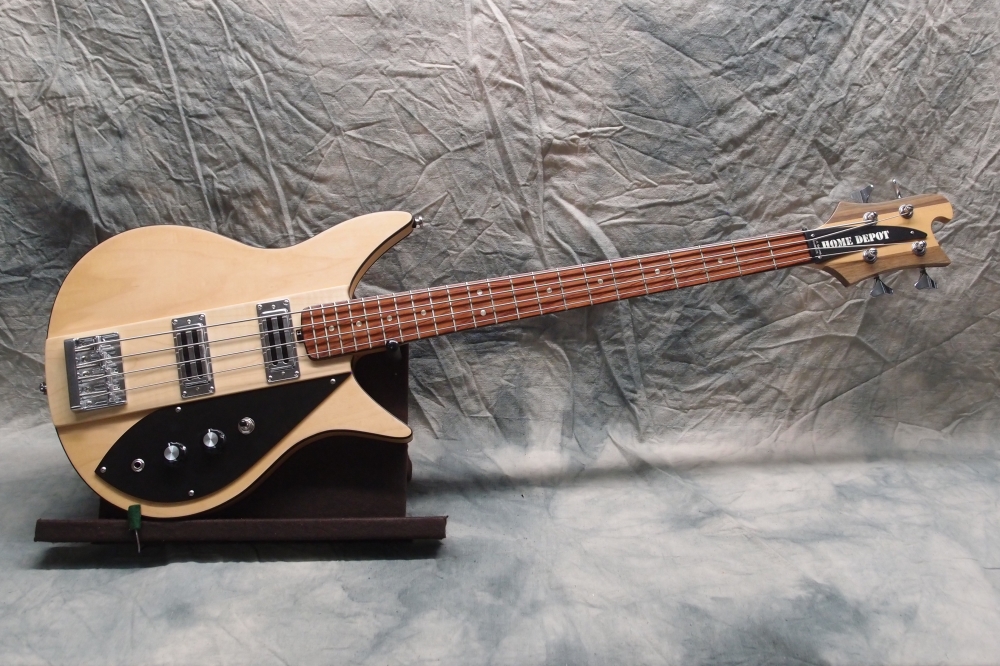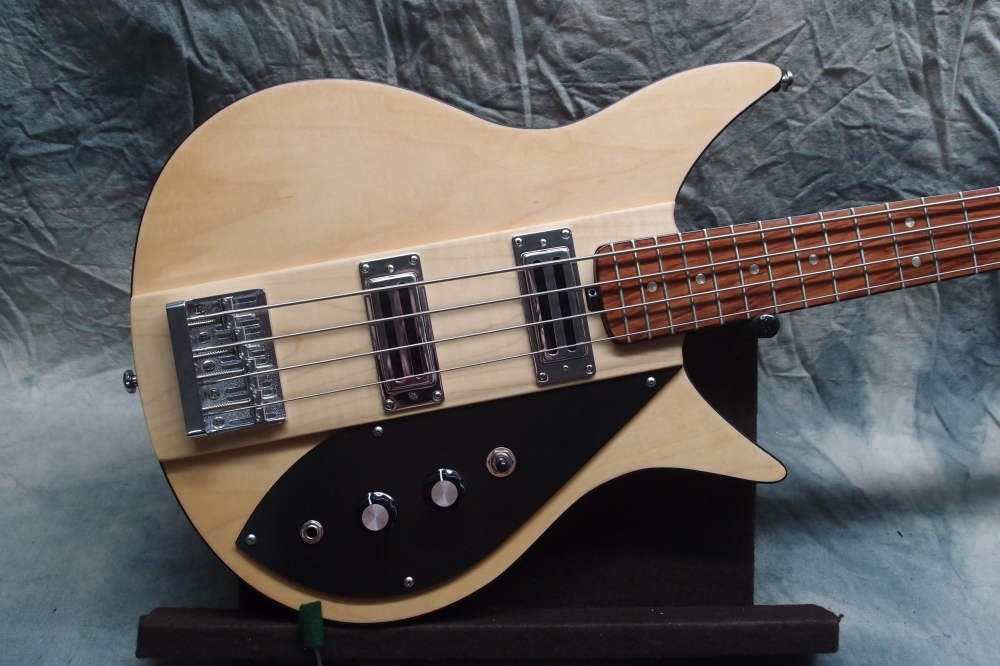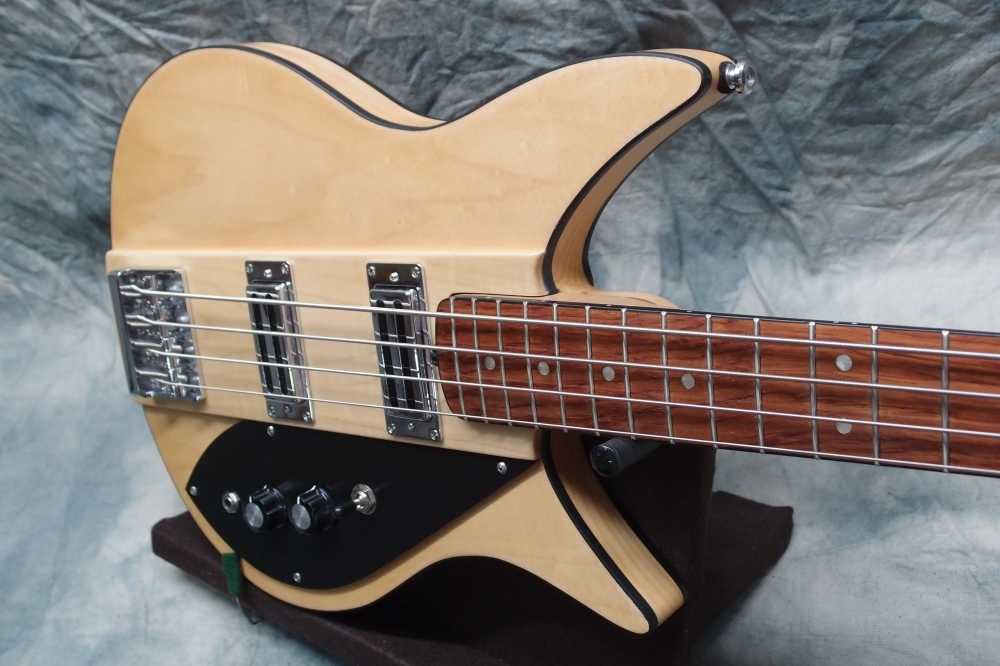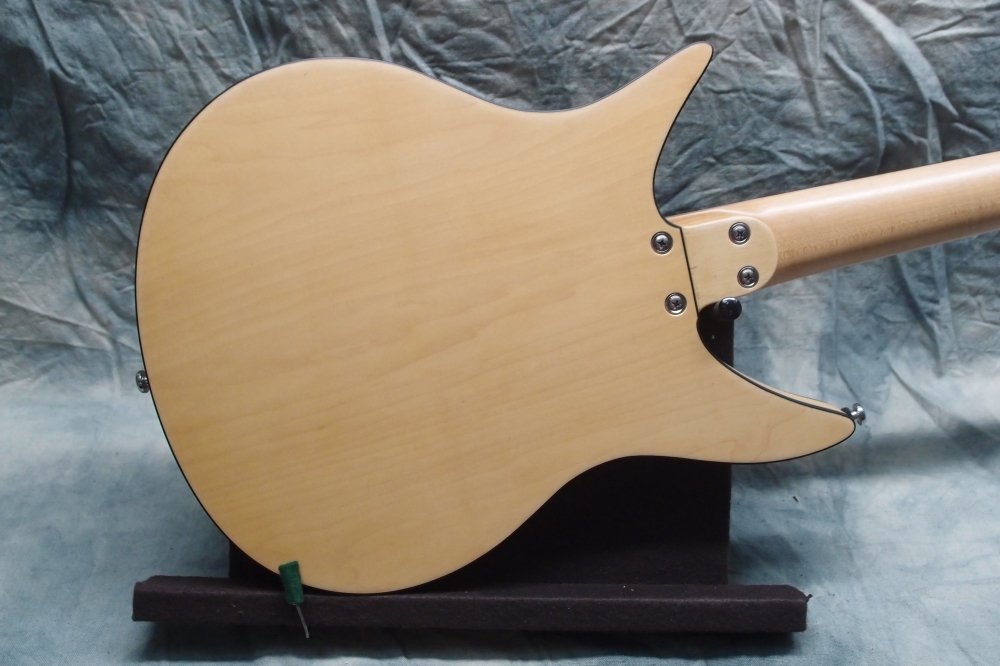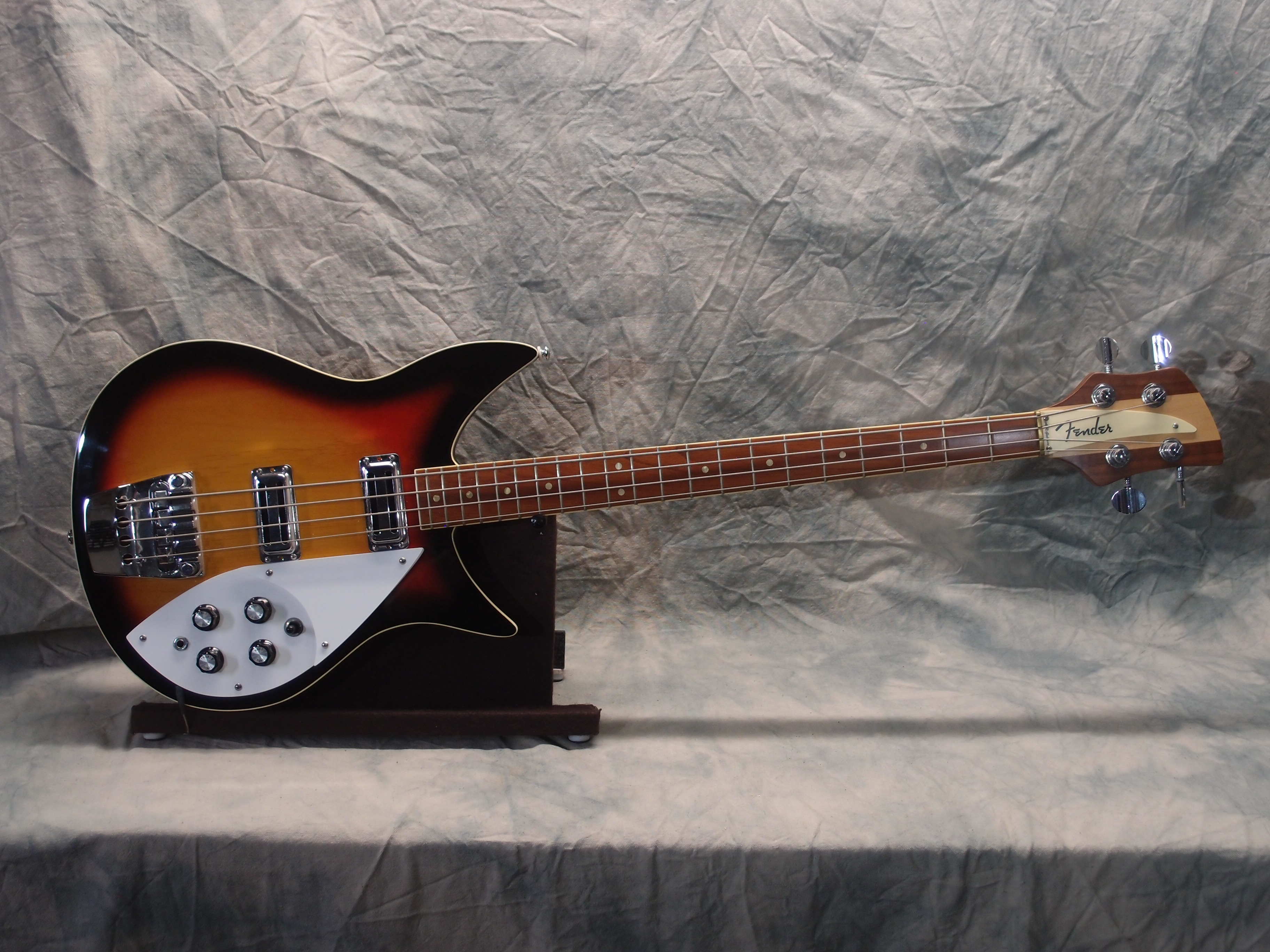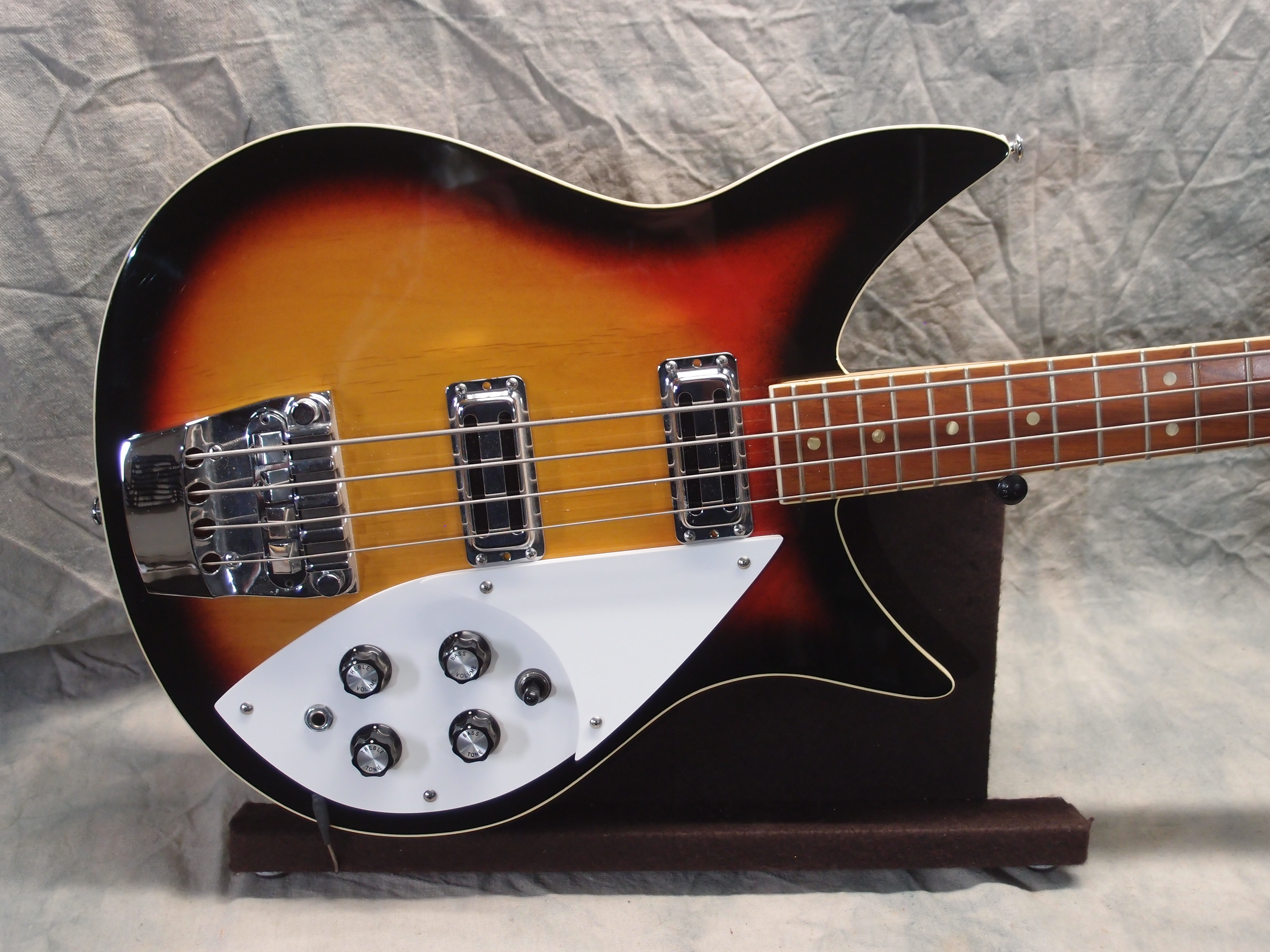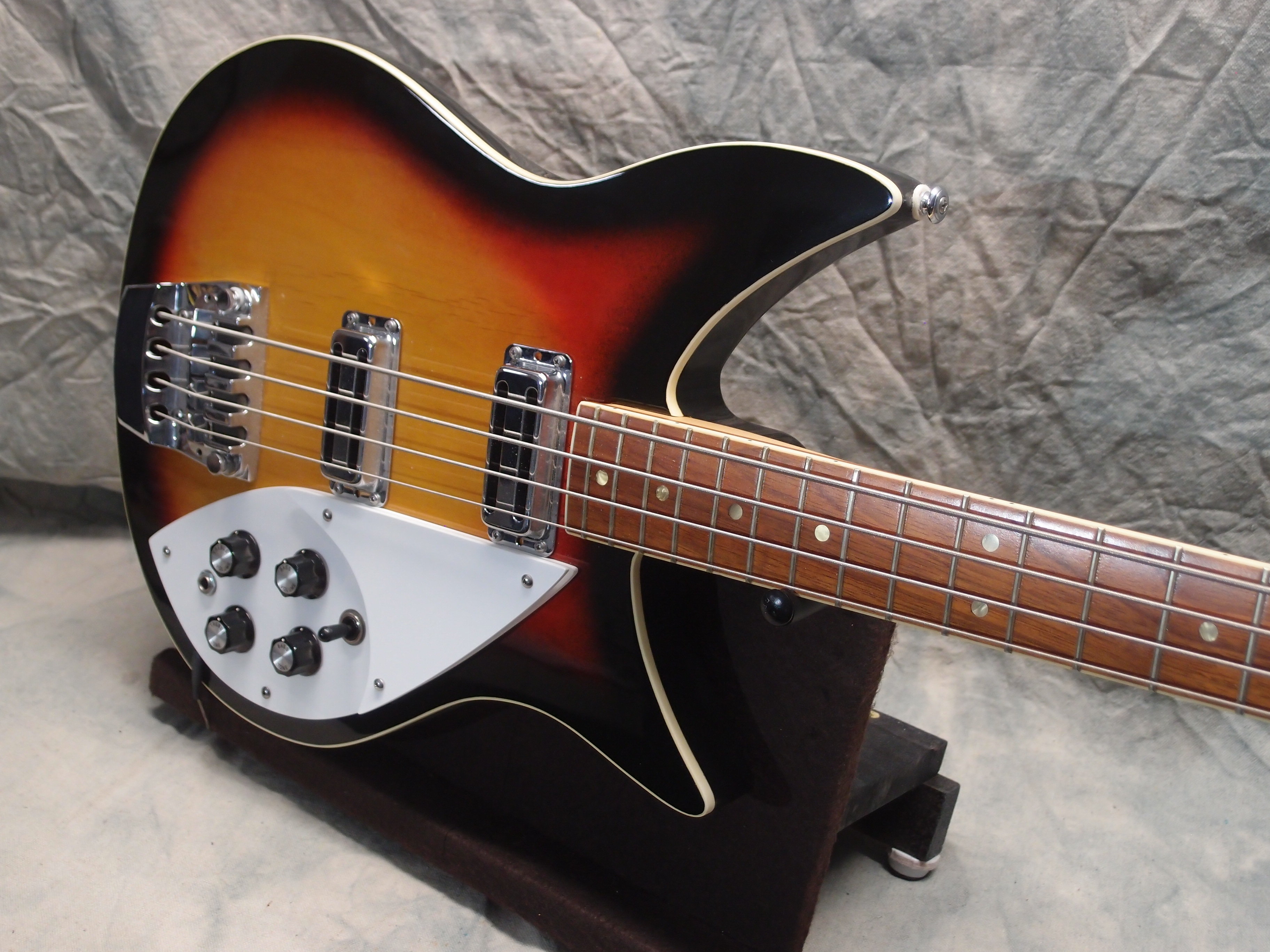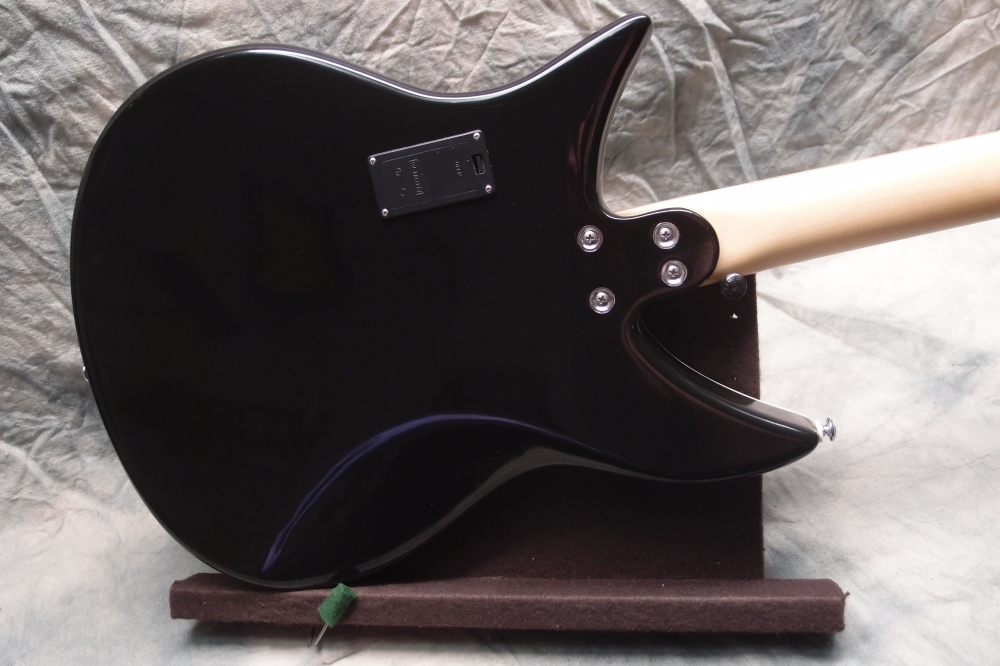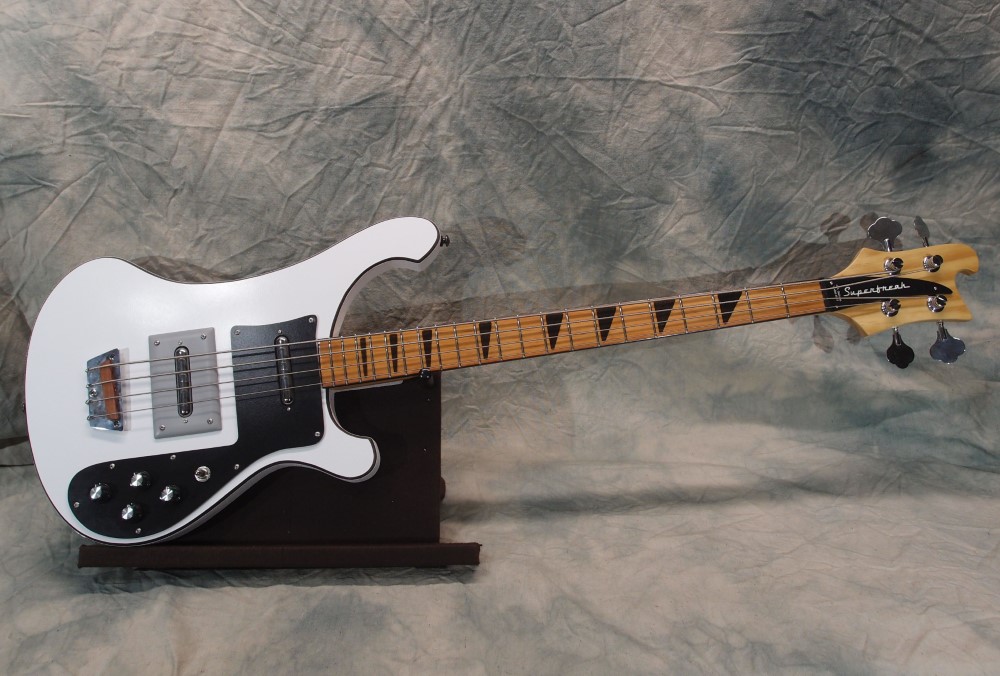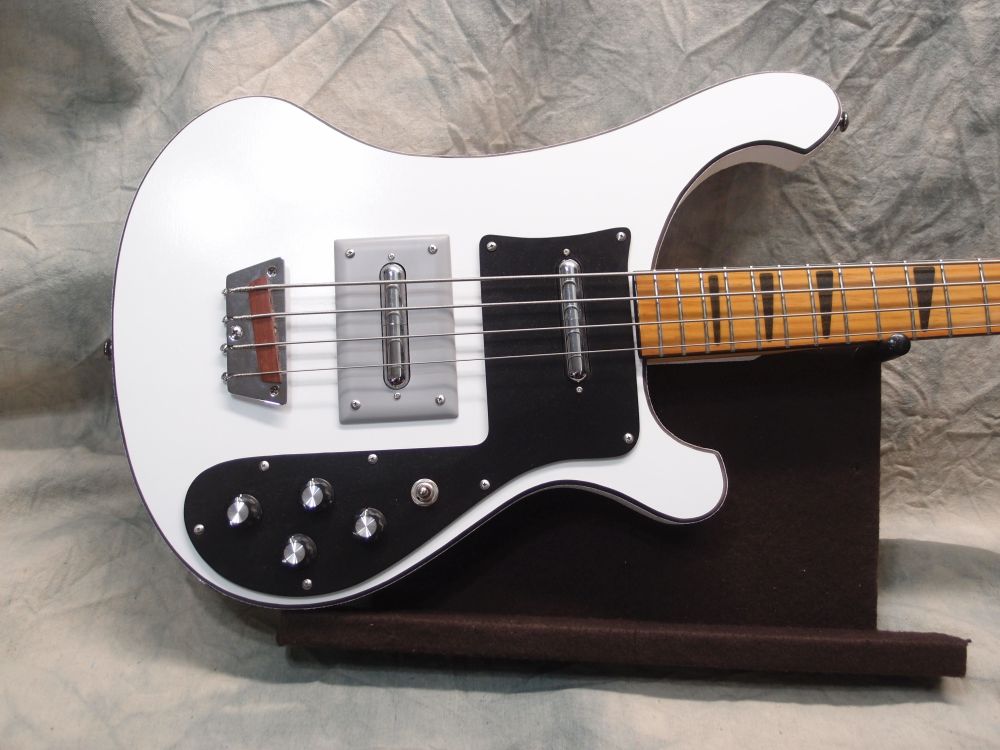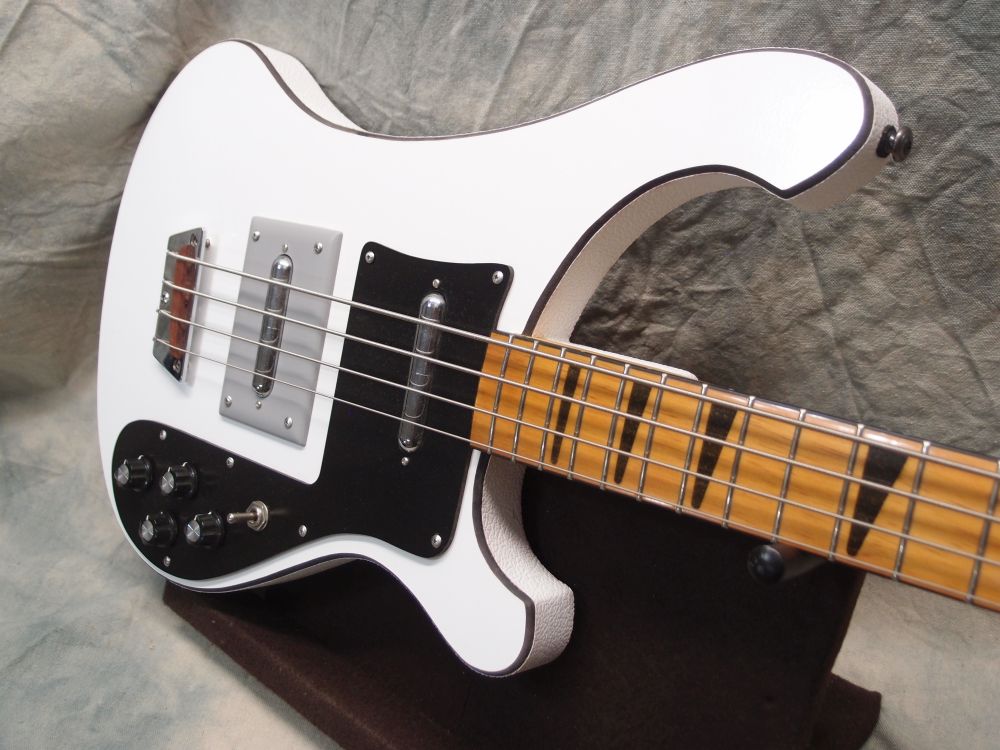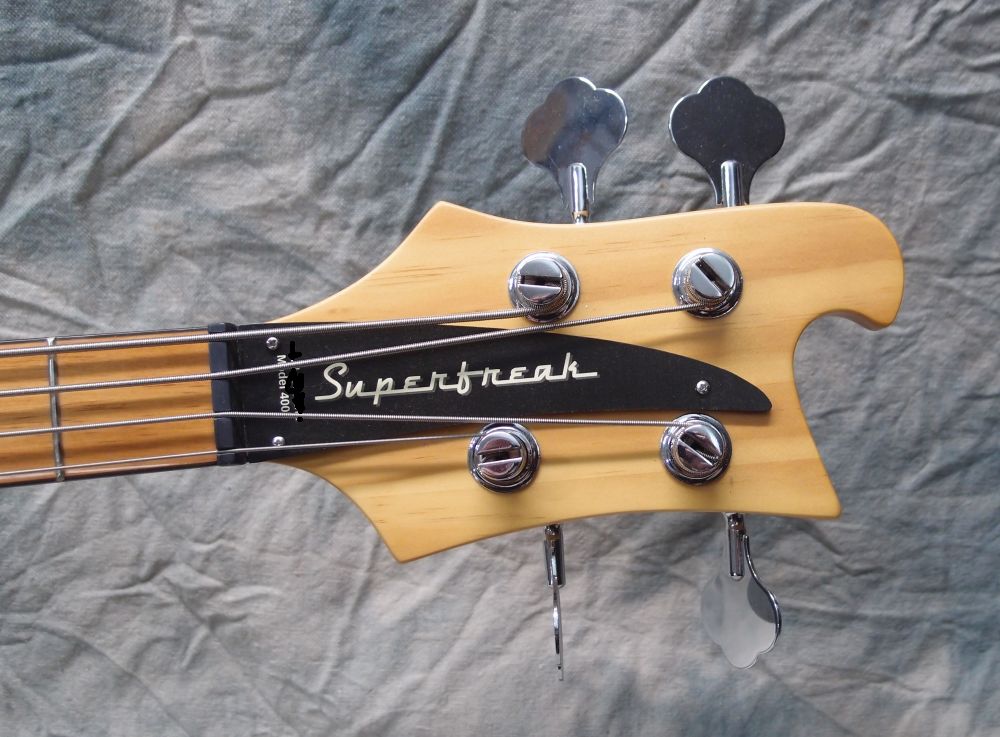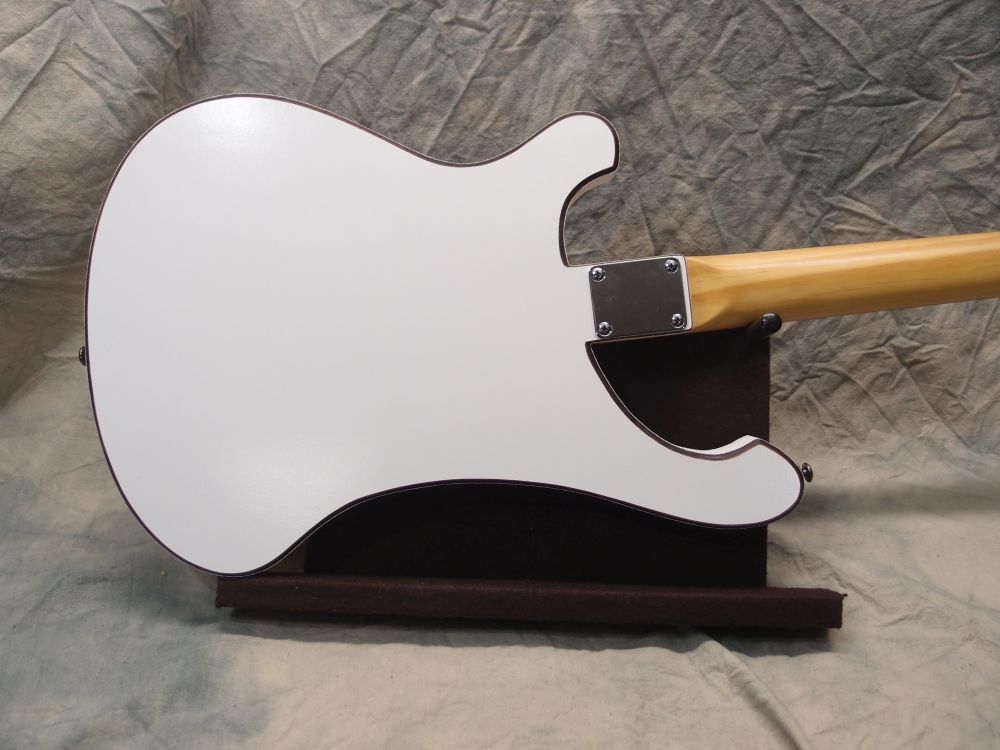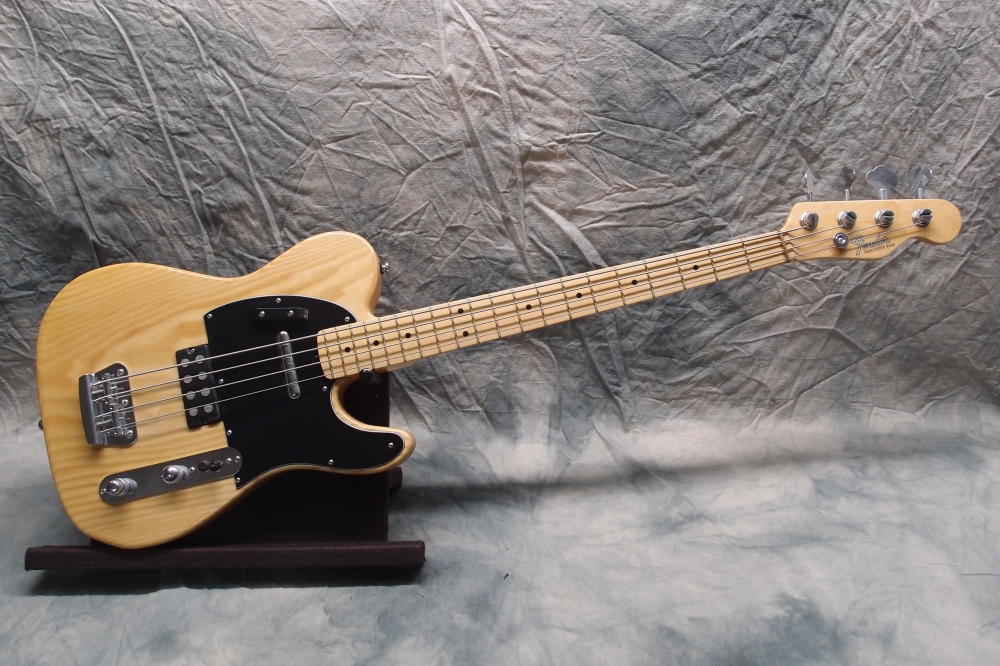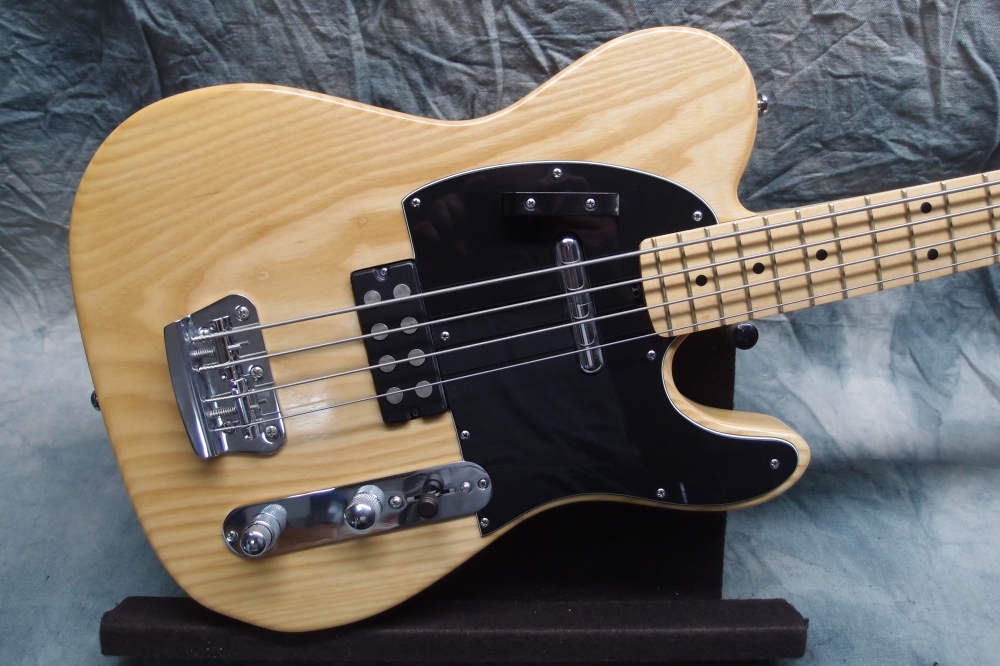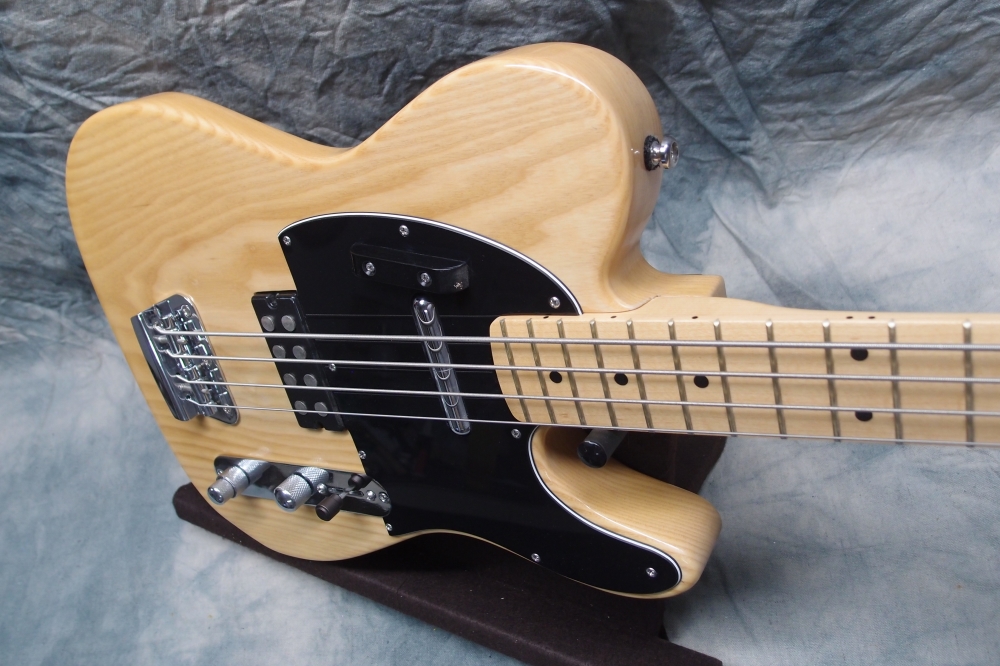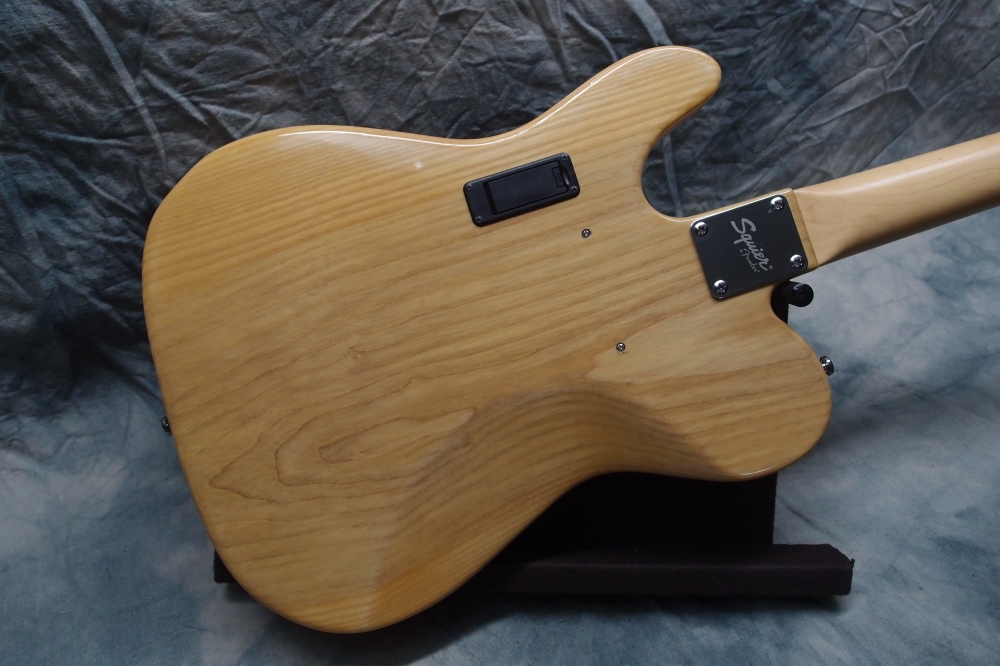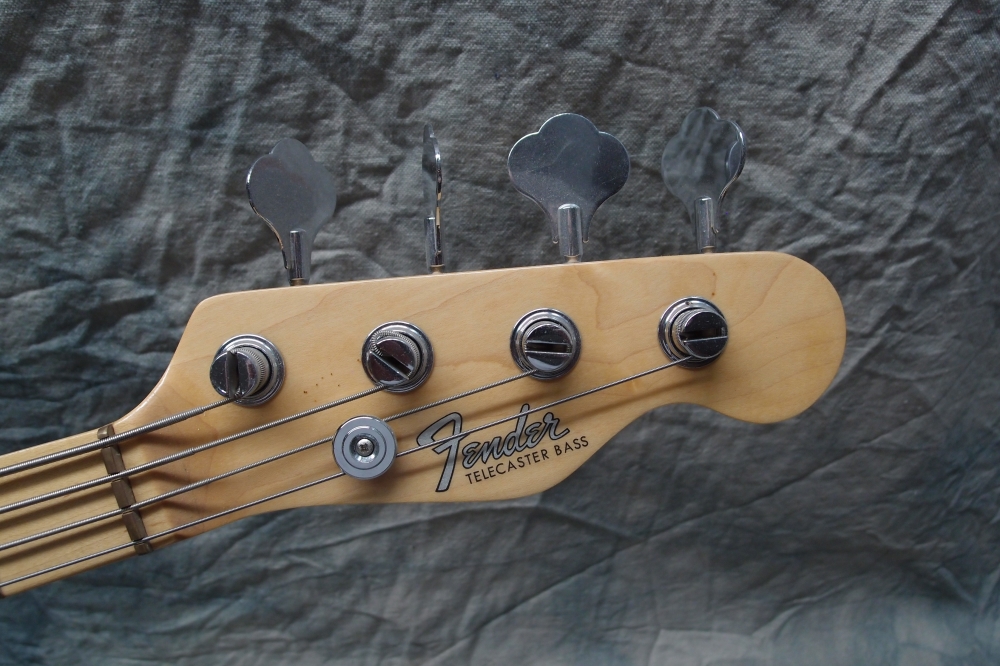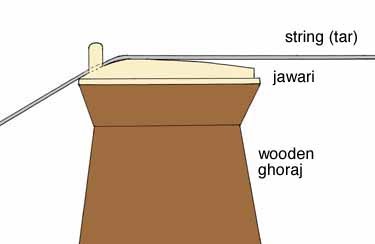Basses built with a medium scale length of 32 inches.
This was my first Audiovox project. Below is the original walnut body, fairly true to the original. My goal was to build the closest possible reproduction of the original Tutmarc Audiovox with modern parts. The ergonomics were very bad, much like a Steinberger. The headstock geometry is also not great, you can see how two of the tuners are reversed to make it work. These are expensive Gotoh tuners that are tight enough to work in reverse; I wouldn't try this with Chinese cheapies.
More: Audiovox 736 Bass ...
Built as a testbed for a number of ideas:
More: Cowbell Bass Guitar ...
This started as a stock Squier Jaguar bass body. This 32" conversion neck was my first bass neck build. Stock pickups ( which are pretty decent ) with cream-colored covers and upgraded electronics. I used a MusicMan bridge to evoke the round Jazzmaster tailpiece, and likewise cream Strat knobs. I think it is a vast improvement over the Jaguar it started out as. The Cowbell inherited some of the Jaguar electronics.
More: Jazzmaster Bass 2 ...
Sort of like a Kubicki, but not really.
More: Kubicki Factor Bass ...
This one went through a long and torturous build process over almost two years. All I can say is don't believe the "advice" you find on talk_ass. However, in the end, it turned out to be a pretty nice instrument.
More: Mosrite Bass ...
This beautiful instrument was built from a teak cutting board that I got for free from Home Depot for review. 32" Eden neck, active electronics. Teak is hard enough for a simple oiled finish. This one was built with a minimum of tools, mostly by hand, to show that it can be done and how.
More: Osprey Bass (BC Rich Eagle) ...
These were my first two tries at a 325 bass. Both are plywood over pine hollow-bodies. The one on the left - #1 - used an experimental neck mounting that I didn't like. The one on the right - #2 - suffered a router mishap. I took all the good parts and built the solid-body, and both of these bodies spent years on the scrap heap.
More: Rickenbacker 325 Bass 2 ...
This was my third go at a 325 bass. The first one was unbalanced with this long neck, and the second suffered a router mishap. Eventually, I salvaged both of those, but first I took all the good parts and did this. Fender-type alder body with 3-tone sunburst, single binding. Surface-mounted pickups, active electronics. Finished entirely in polyurethane.
More: Rickenbacker 325 Bass 3 ...
This one is kind of a joke and an experiment in just how cheap you can build a guitar. The body is dry-erase board over plywood - no finish - with Tolex side binding. Dry-erase board is Masonite covered with Melamine. The neck is 100% Radiata pine, even the fretboard. The "inlays" are glitter and CA glue. The pickguard is the other side of the dry-erase board - 'chalkboard'. The pickup mount is a 57 cent switch plate.
More: Rickenbacker 4001 Bass 1 ...
Solid ash body, 32" neck, active electronics ( stacked tones. )
More: Telecaster Bass ...




